- Welcome to Paris Graduate School
- Online Portal
- Verification
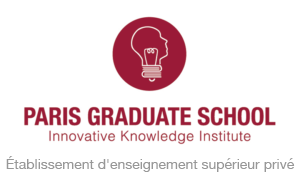

PhD by Research
Duration: 18 to 36 months FEES: 18 000 Euros per year ( non-subject to VAT) Full-time or part-time online
Retention rate: TBD Placement rate: TBD
Introduction
Admission requirements
Applicants should be holders of either a relevant Master’s degree or the Level 7 Diploma. Admission may also be granted to non-graduates with a minimum of Five years’ work experience in the field of study or a related field.
All applicants should have the following English proficiency: – Minimum English IELTS 6.5 or an approved equivalent. (Recommended English IELTS 6.5 level or an approved equivalent) or – Our internal english test (online)
Present an acceptable concept paper / synopsis of the intended research area.
Objectives of the Programme
- Widen access to quality higher education
- Provide students with quality education conducive to becoming competent and innovative members of society, responsive to the changing needs of society
- Equip students with competences and innovativeness in entrepreneurship and technology within the context of the changing needs of society
- Develop requisite infrastructure
- Recruit, develop and retain staff
- Develop and maintain high quality teaching, research, publication, management systems and consultancy
- Broaden the funding base of the School, and prudently manage resources
Introduction to Advanced Research for PhD Students
- Proposal Development Process
- Preparation for Field Research
- Field Research
- Report Writing
- Supervision
- Submission of thesis
Research Methods for Managers:
The purpose of this module is to enable students to develop understanding and skills in research design, research methods and research presentation. Assessment : Thesis with oral defense (60 ECTS credits)
Next sessions
The PhD is a continuing process throughout the academic year and there are no dates specified.
Course leader
Dr kenan bakht.
Director for Academics Affairs
Application deadlines The contract must be signed at least 15 days before the start of the session.
Teaching and Learning Approaches
Teaching and learning approaches.
The delivery will consist of FOUR components:
- Lecture session
- Tutorial session
- Practical session
- Blended Learning
Lecture Session
Lectures will be of a maximum duration of 3 hours (with a 10–15-minute break during the period) the purpose of a lecture is to provide key information to the students for the subject being taught.
On occasions, lecture exercises are used which require course participants to become actively involved in "learning by doing", let students take active part in discussing related current topics.
Tutorial Session
Tutorials will be provided through case studies for the students to further discuss and/or undertake the topics previously covered in the lecture sessions.
Students will be given video/written case studies after each lecture topic and work in groups.
Practical Session
Practical sessions are mainly undertaken in the computer laboratories, or workshop activities are set up to enable the learner to reflect on the processes he or she has experienced. Workshops enhance skills development and the acquisition of knowledge. Short presentations alternate with group work. Students spend time working together in small groups, brainstorming, analysing case-studies, carrying out group discussions or group exercises, learner presentations, role play, plenary feedback session.
PGS Blended Learning Portal
Pedagogy is rapidly changing. Pedagogy requires meaningful classroom interactions between educators and learners.
Passing grades and equal
The Candidate shall be rated as follows:
Evaluation of the courses at the end of the session. Confirmation of the questions already answered on the application online.
Updated at 07/13/2022
- Innovative Knowledge Institute Paris Graduate School
- 10 avenue Kléber
- 75116 Paris, France
- DA 11756550875
- +33 1 73 48 14 42
- [email protected]
- The courses are taking place at
- Accord - Ecole de Langues
- 3bis rue Jean-Pierre Bloch
- 75015 Paris, France
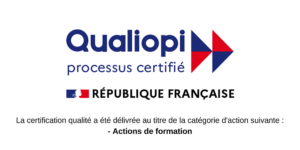
Subscribe to Newsletter
Sign Up to Our Newsletter to Get Latest Updates & Services
Paris Graduate School © 2024 | All Rights Reserved | Privacy Policy
Privacy Overview
- ENLIGHTEN THE FUTURE

International dual PhD programme
The international dual PhD degree programme promotes doctoral mobility and scientific cooperation. It is an unique opportunity for a PhD student enrolling in the first year of a thesis, to carry out his/her research work under the responsibility of at least 2 PhD supervisors (Université Paris Cité – partner university) for the entire duration of the PhD.

PhD supervisors must hold an accreditation to supervise research or equivalent. The PhD student is required to spend his/her study period alternately in at least both institutions.
For more information
What is an international dual PhD degree ?
It is a PhD degree, carried out both in a French institution of higher education and one or several foreign higher education institutions. The PhD student is therefore directed by a thesis supervisor in each institution. The student utimately obtains at least two degrees: one from the French higher education institution and the other from one or several international partner institutions.
Who can apply for it?
The future PhD supervisor of Université Paris Cité must be at the initiative of the dual PhD degree programme request or application.
The International Relations and Strategy Office (IRO) is responsable for the instruction of the international dual PhD degree agreement. They establish the terms and conditions of the thesis: duration, lengths of stay in each institution, the balanced payment of the registration fees, title of degrees, number of the defense jury’ members, place and deadline of the defense.
The College of the Doctoral School is in charge of the issues related to the thesis: pedagogical and administrative enrollment, defense…Etc
Note: the international co-supervision for a dual PhD degree agreement can be set up only during the first year of the PhD program in both institutions. Any request/application from a PhD student in a superior year will be refused by Université Paris Cité.
Application period
From June 15 th 2023 to November 30th, 2023
Procedures & Forms
All the steps listed below are destined to national and international students. They are required to set up a dual PhD and to obtain the doctor diploma from Université Paris Cité.
- Dual PhD request form
- Modification/extension request form
- Withdrawal form
Rules and Regulations
The decree of May 25, 2016 sets the national framework for training and the procedures leading to the issuance of the national doctoral diploma and more importantly the dual PhD supervision (under Article III)
- It sets out the elements that must be included in the international dual PhD degree agreement, such as “The terms and conditions for the constitution of the jury and the material, pedagogical and linguistic support of the students. It must include the following information:
- “The title of the thesis, the name of the thesis supervisor and the student, the name of the contracting higher education institutions and the nature of the prepared degree.
- The language in which the thesis is written; when this language is not French, the writing is completed by a substantial summary in French.
- The procedures for the recognition of training activities carried out in one or other of the higher education institutions.
- The arrangements for the payment of tuition fees in accordance with the pedagogical provisions adopted, without the doctoral student being obliged to pay fees in several institutions simultaneously.
- The health insurance coverage terms as well as the conditions of accommodation and financial aid that the doctoral student can benefit to ensure his/her mobility.”
The decree of May 25, 2016 also states that:
- “The thesis gives rise to a unique defense. (…)”.
- “The terms and conditions for the protection of the subject, the filing of reports and the reproduction of theses, as well as those for the management of the research results common to the laboratories involved, their publication and their exploitation, are decided in accordance with the specific legislation of each country involved in the preparation of the thesis and specified by the convention.”
Setting up an International Dual PhD Degree
You will find below the steps to implement a dual PhD, which will lead to the signature of an agreement between the two institutions that will set in motion the administrative and pedagogical formalties to award the double diploma. This agreement will also enable to legally protect the research of the PhD candidates in regards to intellectual property, confidentiality and publications.
1.Preparation of the dual PhD request
First the student needs to find two thesis supervisors, one in Université Paris Cité, the other in one foreign university or more.
Caution: Only the researchers with an authorization to direct researches (HDR) can supervise a thesis in France. If you need, you can contact the doctoral school of your study/research field. It is not possible to have more than one thesis supervisor in each institution. If you already have a cosupervision, you will need to end it in order to establish a dual PhD.
- Refer to the list of doctoral school of the university
- Read the conditions carefully with the thesis supervisor from Université Paris Cité and follow the steps to set up the dual PhD:
- Fill out the dual Phd request form and have it signed by the thesis supervisor and the director of the doctoral school, in this order. The doctoral school will probably ask you to complete its admission procedure before signing
Please note: The dual PhD agreement can only be signed during the first year of PhD in both institutions. It is not possible to make a request if the student has already completed his or her first year in one of the two institutions.
The doctorants enrolled in Université Paris Cité in September must be aware of the academic calendar and the enrollment process at the partner institution.
- In Université Paris Cité, non-French student must enroll by the same way the French students do, following the calendar set by the CED (Doctoral School College).
- In case of registration fee waiver for the first year the student must complete his.her enrollment file on eCandidat and the enrollment team will get back to him.her once the agreement is signed.
- If the students must pay his.her registration fee in UP Cité for the first year, he will be able to finalize the enrollment process with the CED before the signature of the agreement if he complete and submit the dual PhD request form after. If he.she doesn’t the student will be considered as a regular student in UP Cité.
2. Examination of the request
The signed request form must be sent to the Strategy and International Relations Office (SRI/IRO) by the doctoral school. The dual PhD request will then be examined by the IRO to check its coherence and conformity regarding to the regulations and norms of the university. Additional informations can be asked to the thesis supervisors. Once the examination is completed, the IRO will contact the partner institution to start the negotiation related to the provisions of the dual PhD agreement.
3. Negotiation
The IRO will negotiate the dual PhD agreement with the partner.s institution.s in light of the informations communicated by the future thesis supervisors.
4.Signature
Once the parties agree on the terms, all the concerned persons sign the agreement. The institutions will sign one after the other respecting this order: Thesis supervisor à Director of the doctoral school à Institution head (President/Rector) or his or her delegate. The PhD candidate can sign at any time during the process. The IRO will be responsable for collecting the three signatures from UParis Cité and from the candidate as needed.
5.Validity of the agreement
Once all the signatures are collected, the dual PhD is set. It remains effective if the student registers in the two partner institutions for the entire period of his or her thesis. The IRO will send the signed version to all the concerned persons on UParis Cité’s side. The agreement will remain in effect until the defense deadline, which is generally the first three years of the PhD.
Note: If the student was not able to defend his or her thesis before the deadline in the agreement, he or she must make a request for an extension. For any change to the initial agreement (thesis supervisor, periods of stay, etc…), a modification request must be made (cf. requesting an addendum).
Requesting an Addendum (modification and/or extension of the agreement)
For any change or extension of the initial agreement, a modification request form must be given to the doctoral school, who will sign and transmit it to the International Relations Office. In the case of an extension request, the form must be completed at the same time as the usual derogation request, and must be transmitted to the doctoral school by all the PhD students at UParis Cité after the third year.
Once the IRO receives the request, we will follow the same steps as the setting up of the initial agreement, enabling to establish an addendum to it.
For the enrollment, while waiting for the addendum to be signed, the student can pay his or her fee in the institution indicated in the request form. However, in UParis Cité’s side, in case of a fee waiver for the concerned year, we will have to wait until the addendum is signed before the registration team can issue the registration.
In case of an extension, the addendum will be valid until the new defense deadline, that generally being one additional year.
Note: The addendum can only be signed for one year and if the student doesn’t defend his or her thesis before the new deadline, another addendum must be requested during the next year following the same procedures. As a reminder : In France, six years is the maximum duration of the PhD.
Defending your PhD Thesis
The CED and the Doctoral School (ED) are the dedicated contacts of PhD students for all questions whether they are of pedagogical or administrative nature.
Please note that organizing the PhD thesis defense takes time. Finding a jury and a defense date that suits everyone takes at least 3 months. If the date of the defense exceeds the validity of the dual PhD agreement or if it exceeds the date of the amendment for extension:
- Either a new amendment is drawn up following an extension request made by the student. Students are then required to enroll for the following year.
- Or the international dual PhD degree agreement is null and void, i.e. it expires given the agreement is no longer legally valid. The PhD will then lose the Cotutelle status. Students will be required to pay the tuition fees in Université Paris Cité for all the previous years, if in the case it has not already been done.
Three tips to succeed:
- Obtain information about the procedure for your PhD defense at Université Paris Cité (even if the defense takes place abroad). Inform the Doctoral School and the International Relations and Strategy Office (IRO) of the desired date of defense.
- To constitute the thesis jury, send a jury proposal to the Doctoral School (even if the defense takes place abroad).
- After the defense, the minutes of the exam board meeting, the defense report and the thesis must imperatively be sent to the College of the Doctoral School in order to be awarded of a PhD degree from Université Paris Cité.
Financial Support
International mobility grant from the French Government for an international PhD co-supervision. Scholarships from the French Government are awarded by the Ministry of Europe and Foreign Affairs for internships or language stays in France. A majority of them are awarded by the Cooperation and Cultural Action Departments of French embassies and General Consulates abroad. Read more
Eiffel scholarship . This scholarship programme offered by Campus France is designed to support the international recruitment efforts of French higher education institutions. It applies to three priority areas of study:
- Economics and management
- Law and Political Science
Programmes offered by Campus France
Existing international funding is listed in the Campus Bourses directory.
Binational institutions
These institutions aim to promote the academic collaboration between two countries. They are able to fund theses in dual PhD between the concerned countries:
- Université Franco-allemande
- Université Franco-italienne
Withdrawal from the International Dual PhD or From the PhD
In case of withdrawal, the dual PhD the withdrawal form must be completed and signed. It will enable us to define clearly whether the withdrawal only concerns the dual PhD procedure or whether it concerns the entire thesis. If it only concerns the dual PhD procedure then the student will be allowed to complete his or her thesis in one of the two institutions, according to his or her choice.
The IRO will determine on a case-by-case basis the measures that must be taken. It is possible that no further steps are required.
International Relations and Strategy Office
Grand moulins campus, 5 rue thomas mann 75013 paris, [email protected], odéon 85 boulevard saint germain paris 6e [email protected].
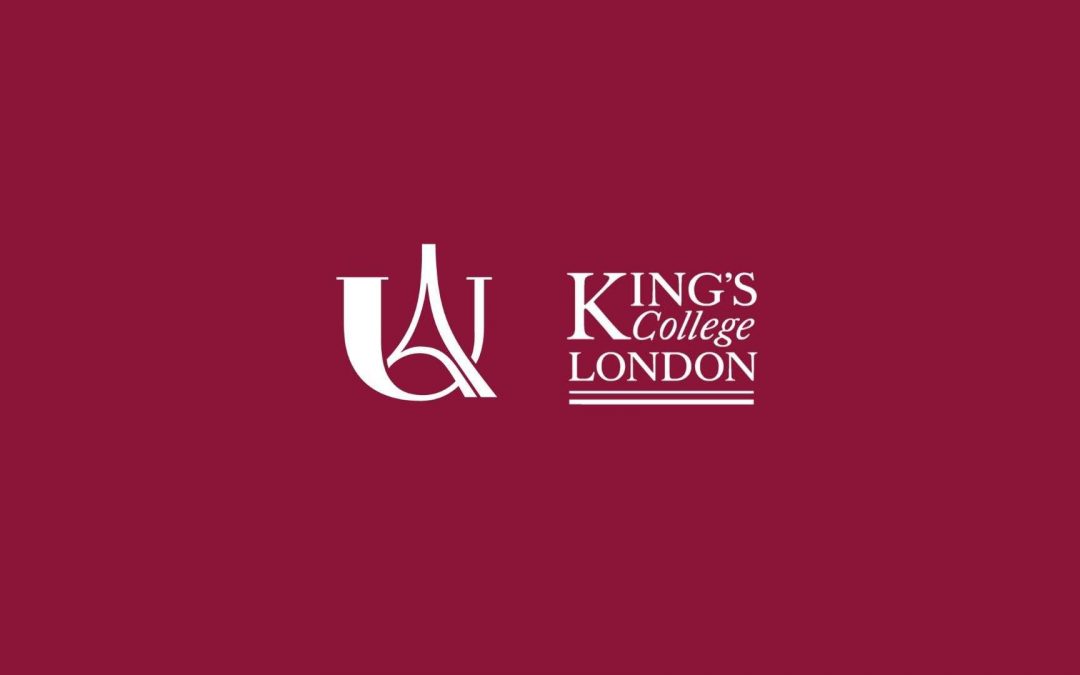
Call for projects 2024 Université Paris Cité and King’s College London
International , Research
Université Paris Cité and King's College London are launching a seed-funding call for joint research projects to promote and strengthen collaborations between their researchers. Research Fields This call is open to all research disciplines. We would like to support...

A look inside the Circle U.’Lympics
Circle U , International , Student life
Organised from January to April 2024 by Université Paris Cité, King's College London and the University of Aarhus, the Circle U.'Lympics brought together over a hundred participants for a series of four online conferences focused on the Olympic Games. More than thirty...
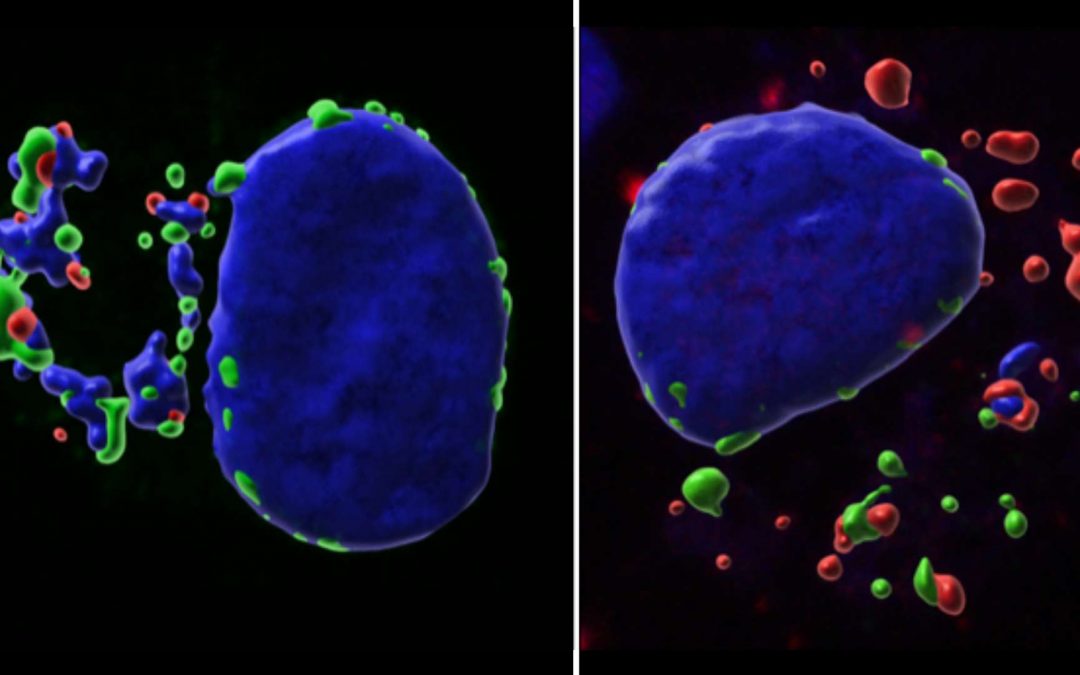
Theileria annulata and Cancer: a parasite strategy revealed!
A new study from Prof. Jonathan Weitzman’s research team at the Epigenetics and Cell Fate unit has shed light on the mechanism by which the parasite Theileria annulata, which causes a cancer-like diseases in cattle, evades the host cell’s defense mechanism.
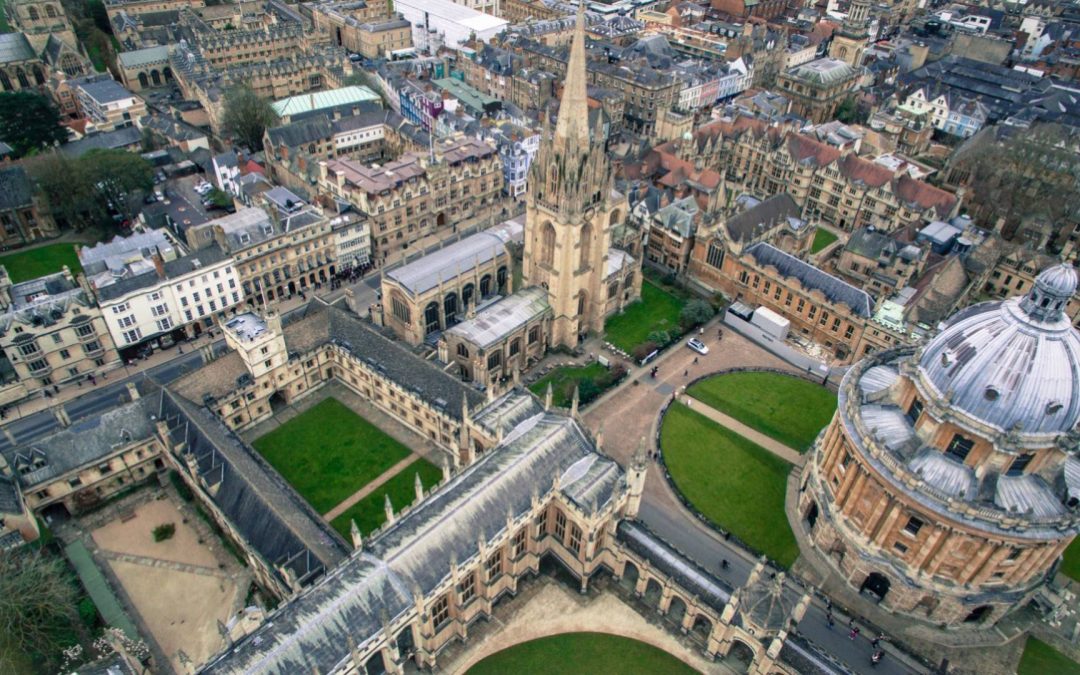
Paris-Oxford Partnership (POP) Annonces its Results
Faculty of Humanities and Social Sciences , International Partnerships , Research
The Paris-Oxford Partnership (POP) Evaluation Committee, composed of Université Paris Cité, CNRS, Institut des Etudes Avancées and Oxford University, announces the results of its calls for projects. The call aimed to facilitate and strengthen scientific collaborations...
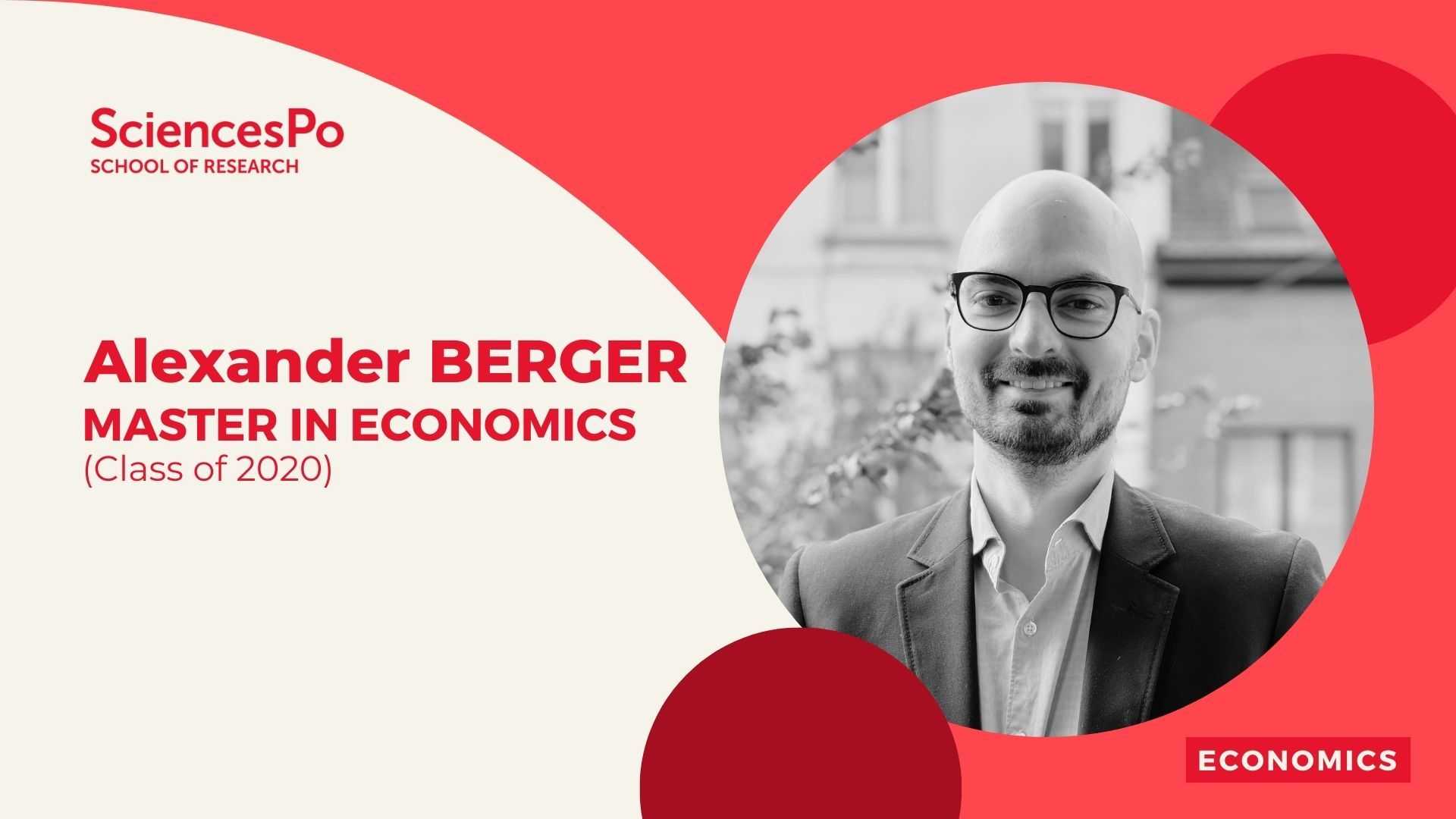
Maël Ginsburger, Thesis Prize of the Ministry of Ecological Transition 2024
Congratulations to Maël Ginsburger, Doctor of Sociology at CRIS, on winning joint 2nd prize for his work on ordinary habits and inequalities.
The School of Research Programmes
Find the programme that suits you best
Discover our programmes

DOWNLOAD OUR BROCHURE
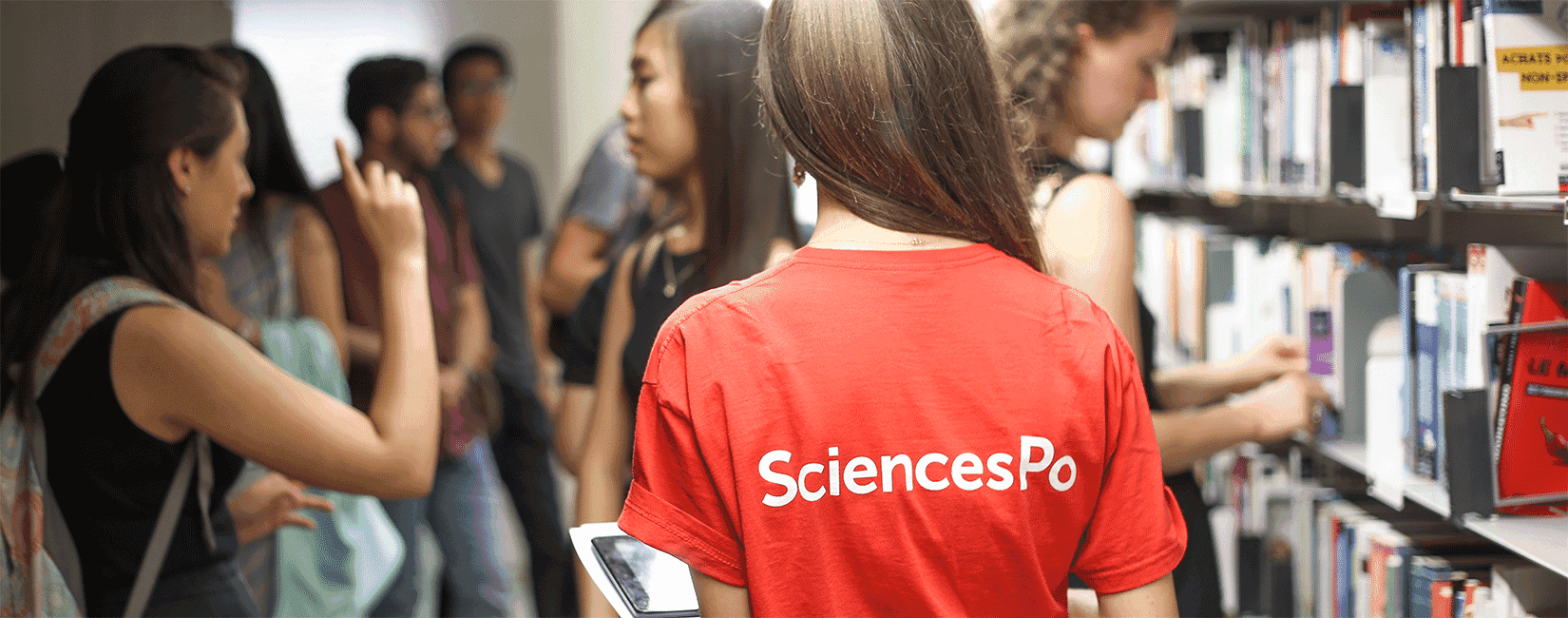
Information sessions for prospective candidates

Publications by PhD students and young doctors (fr)
10e Conférence doctorale en théorie politique
Our programmes

Master's Programmes

PhD Programmes

Accreditation to supervise research (HDR)
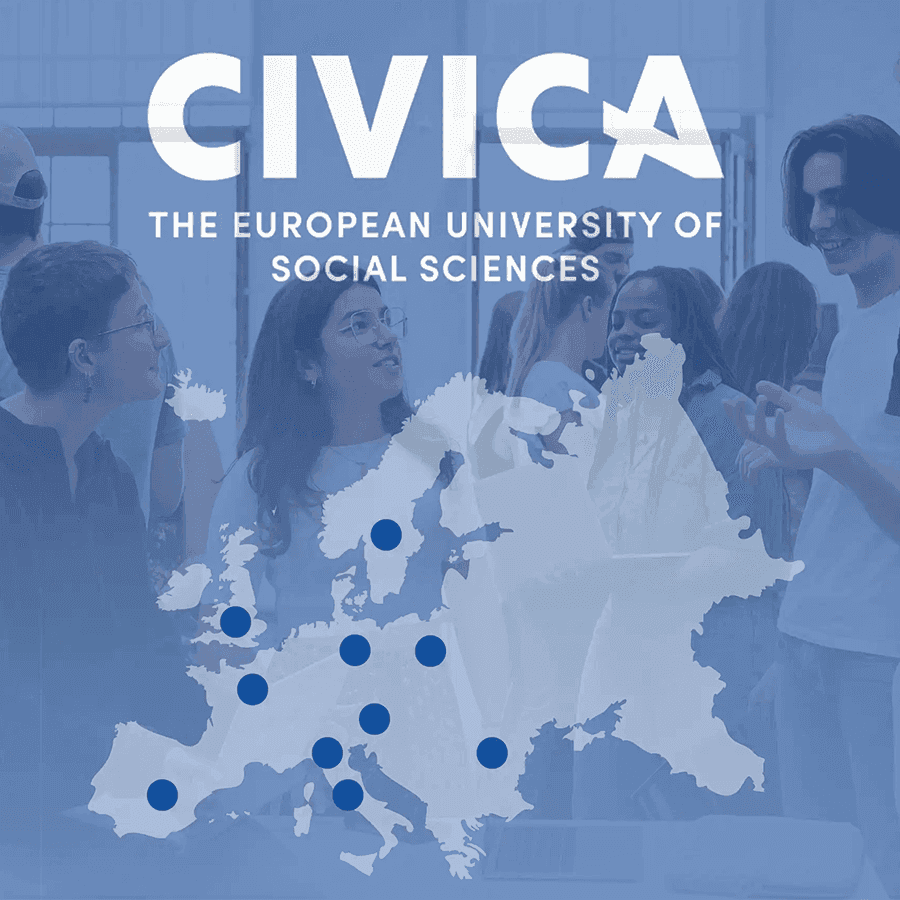
Short Research Training Courses
Graduate testimonials

Mélina London, Master's in Economics (Class of 2017)
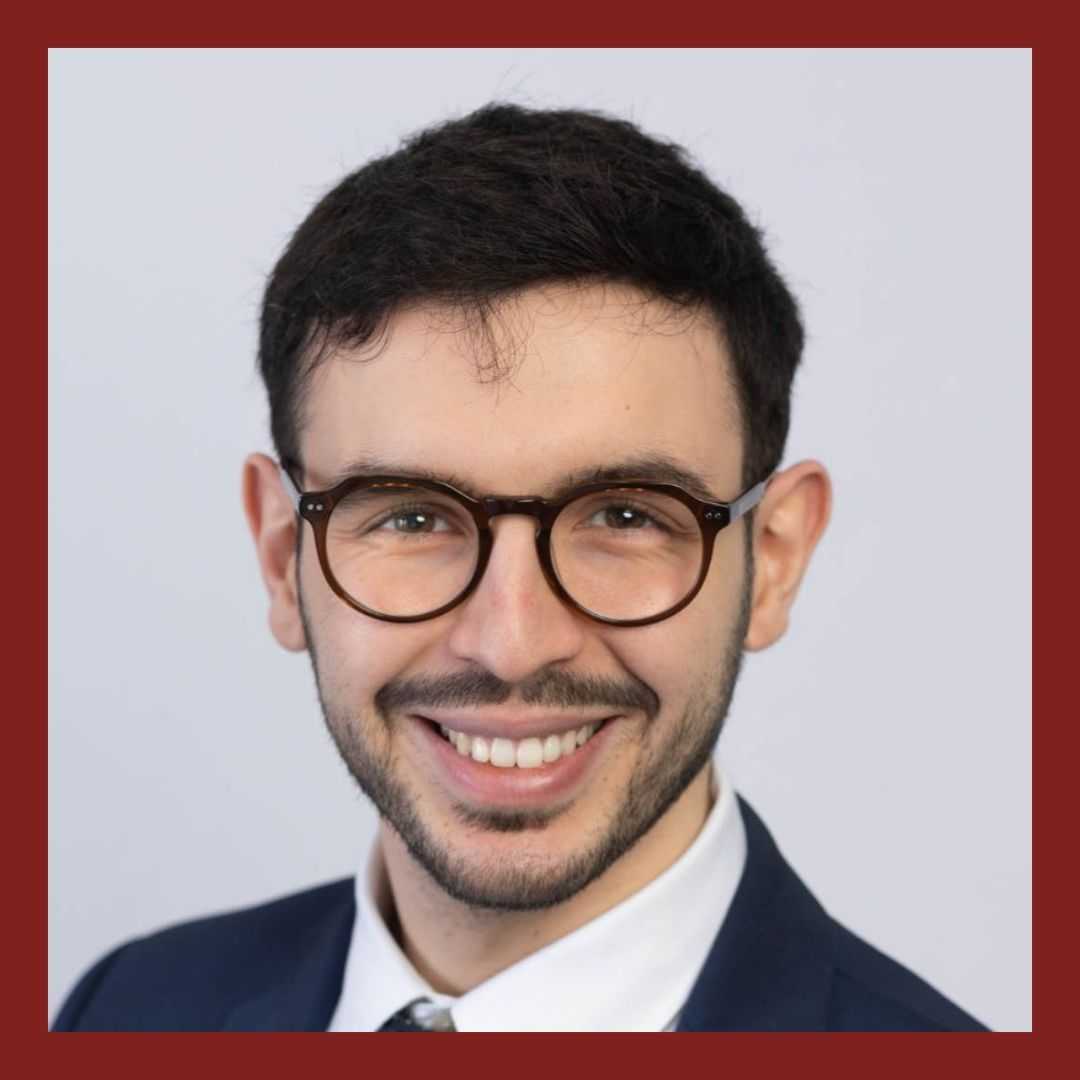
Jad Hammani, Master in Sociology (Class of 2019)

Alexander Berger, Master in Economics (Class of 2020)

Julie Madon, Master's and PhD in sociology
Address / phone
27, rue Saint Guillaume - 75337 Paris Cedex 07
Phone: +33 (0)1 45 49 50 50 | +33 (0)1 42 22 31 26
SUBSCRIBE TO OUR NEWSLETTERS
A to Z Index
Legal terms
Quick links
Student account
Faculty account
Manage my password
Sciences Po App
© 2024 SCIENCES PO

- The Institut in numbers
- Our governance
- Our commitments
- Conference Center
- Innovation and technology transfer
- Strategic plan for 2019-2023
- How to support us
- Why support us?
- We need you
- Disease sheets
- Find in journal
- Press documents
- Resources for medias
- Our Sars-Cov-2 research projects
- All our COVID-19 news
- Our Covid-19 disease fact sheet
- Our response to fake news
- The Institut Pasteur
- Our missions
- Medical Center
- The research journal
- All SARS-CoV-2 / COVID-19 from the Institut Pasteur
- Education center
- Programs and courses
- Startup Awareness
- Housing in Paris
- Cooperation
- International programs
- International calls
- Fellowships and mobility
- Pasteur Network
- Biological Resource Center (CRBIP)
- WOAH Collaborating Centers
- Industry Partnerships
- Investor Partnerships
- The Carnot Label
- Our job offers
- When you arrive
- Why join us?
- Pasteurians and Alumni Network
- Picture Library
- Scientific publications
- Pasteur Innov’ Day: Fundamentally Applied 2nd edition – 25th, June 2024
- Follow the institut Pasteur on Facebook
- Follow the institut Pasteur on LinkedIn
- Follow the institut Pasteur on Twitter
- Follow the institut Pasteur on Youtube
- International
- Public Health

Pasteur-Paris University International doctoral program (PPU)
The Institut Pasteur organizes a doctoral program in collaboration with Université Paris Cité, Sorbonne Université, and Université Paris Saclay, for students holding a master degree or the equivalent in science, medicine and related fields.

In 2009, the Institut Pasteur, the world leading biomedical research institute founded by Louis Pasteur in 1887, inaugurated the Pasteur Paris-University (PPU) international doctoral program in collaboration with several major Parisian science universities for students holding a Master degree (or equivalent) from a university outside of France and who have not worked or resided in France for more than 12 months in the 3 years prior to their recruitment.
PPU at a glance
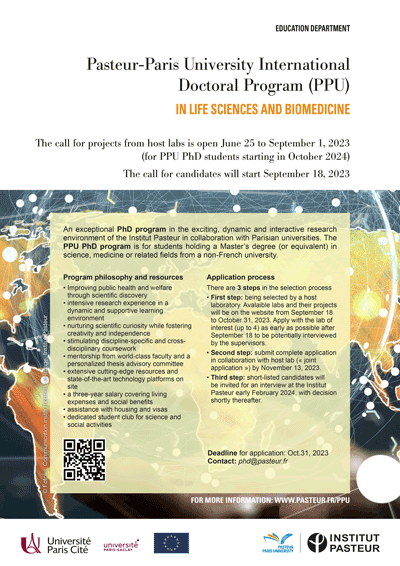
Download the flyer
Download the booklet
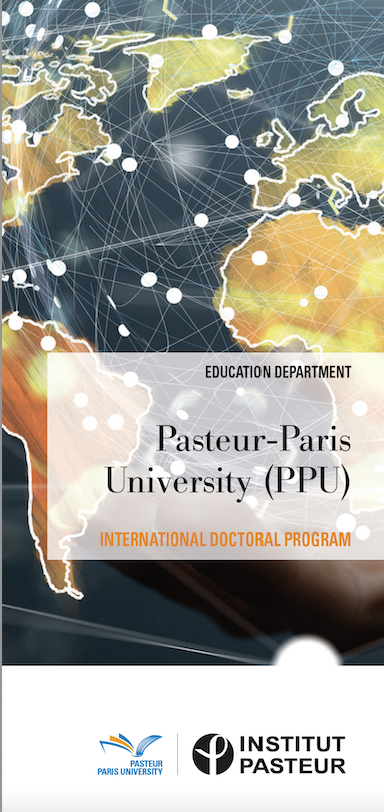
Students conduct their research in one of the 144 laboratories of the Institut Pasteur that offers cutting edge training in a large variety of topics covering Molecular and Cellular Biology, Genetics, Immunology, Microbiology, Genomics, Bioinformatics, Structural Biology, Enzymology and Metabolism, Biological Chemistry, Virology, Parasitology, Medical Mycology, Epidemiology, Infectiology, Imaging, Neurosciences, Developmental Biology and Systems Biology. They have access to a stimulating technological environment to carry out their research project. This includes opportunities to conduct technological and methodological co-developments on high-end equipment under the supervision/in partnership with technology platforms or service and research units (UTechS). In addition, PPU students will receive specific courses on soft skills, as Oral Presentation, Journal Club, Workshop on Ethics, French Lessons. ( Educational program )
Students are part of the Pasteurian community with whom they share their passion for science or technology, and their wish to contribute to the prevention and treatment of diseases. Students are immersed in an exciting, dynamic and interactive research environment including access to a large variety of technology platforms with state-of-the art expertise and equipment.
They can extend their knowledge by attending specialized courses and benefit from a vast seminar program attracting major speakers from all over the world. At the end of their studies (typically three years), students defend their PhD according to European guidelines.
The call opens in September and students are selected on a competitive basis . Candidates are first selected by host laboratories, then their applications are presented to a had hoc selection committee by mid-December. Candidates who are short listed by the selection committee are then interviewed early February, with results communicated by mid-February. Selected students are enrolled in the following October for a three-year contract.
Students selected for the PPU program receive a salary from Institut Pasteur including a benefits package (health insurance, unemployment insurance and retirement plan). The program beneficiates from financial support by Institut Pasteur, the European Community, partner institutions, governmental agencies and/or private foundations.
Assistance with administrative issues and with finding accommodation in student residences, including the Cité Internationale Universitaire de Paris, will also be available ( Financial support and benefits ).
Current call
The call for enrollment in october 2024 is now open..
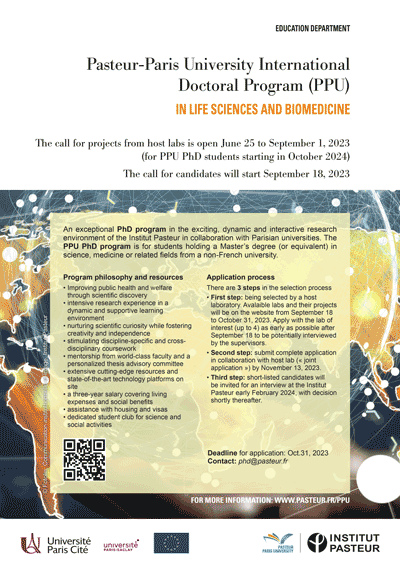
The 2023-2024 call for enrollment of students in October 2024 will open on September 18, 2023.
- Deadline for applying to projects on the application website: October 31, 2023
- Deadline for submitting the joint application with the host laboratory: November 13, 2023
- Interview week: February 2024
Please note that the research projects are posted on the application website , and that you will have to create an account in order to visualize the projects and to apply .
Application website
PPU and PPU-Satellite Programs
From mid-September to the end of October , candidates can apply in parallel to up to 4 projects from six PPU programs: the PPU program and the PPU-Satellite programs: PPU-IMAGINE, PPU-INCEPTION, PPU-OXFORD, PPU-Research & Technology and PPU-EID and contact more than one supervisor.
Please note that to carry on with the selection process ("joint application") after November each year , candidates must choose one single project and program among the six.
The research projects ( PPU, PPU-INCEPTION, PPU-Oxford, PPU-Research & Technology and PPU-EID ) are posted on the application website . You will have to create an account ( link to the platform ) in order to visualize the projects and to apply .
Pease note that no application through email will be accepted.
The selection of the PPU-IMAGINE program is independently organized by Institut Imagine , while the other four programs (PPU, PPU-INCEPTION, PPU-OXFORD and PPU-EID) share the same selection process organized by Institut Pasteur. The PPU-Research & Technology selection process is organized by Institut Pasteur, but follows a specific process detailed in:
https://www.pasteur.fr/en/ppu/RT
Furthermore, IP has a seventh PPU program, named PPU-CNBG exclusively reserved to CNBG employees. PPU-CNBG features a distinct selection process including a first selection step made by CNBG, followed by a specific selection path put in place at Institut Pasteur.
PhD students enrolled in the PPU, PPU-INCEPTION, PPU-OXFORD, PPU-Research & Technology and PPU-EID programs will benefit from Institut Pasteur working contracts (for more details see below “ FINANCIAL SUPPORT AND BENEFITS ”). The PPU-IMAGINE PhD students will benefit from Institut Imagine working contracts and PPU-CNBG PhD students maintain their CNBG working contracts.

China National Biotec Group (CNBG) is a subsidiary of the China National Pharmaceutical Group Corporation (SINOPHARM). Its development is part of the history of Chinese biological product industry, and it greatly contributed to China's endeavor to eradicate or reduce the incidence of various severe infectious diseases. By manufacturing and supplying over 200 types of biological products for disease prevention and for therapeutic and diagnostic use (including all vaccines for Chinese EPI program), CNBG plays a major role in safeguarding the health of the world's largest population.
The partnership between Institut Pasteur (IP) and China National Biotec Group (CNBG) is dedicated to foster R&D industrial partnerships that translate science into outcomes beneficial to patients with disease and to disease prevention. Through an interdisciplinary and comprehensive cooperation, Institut Pasteur and CNBG join forces to develop, promote and facilitate research/training of young Chinese scientists through a three-year PhD program that takes place on the Institut Pasteur campus. The Pasteur-Paris University Program PPU-CNBG provides academic and professional training to highly motivated CNBG employees who are involved in cutting-edge projects developed on the campus.
PPU-IMAGINE
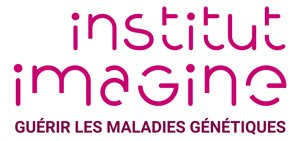
Institut Imagine is Europe's leading center for research, care and teaching on genetic diseases, and its mission is to understand and cure them . The Institute brings together 1000 of the best doctors, researchers and healthcare personnel in an architecture that creates synergies. It is this unprecedented continuum of expertise, combined with proximity to patients, that allows Imagine to accelerate discoveries and their applications for the benefit of patients.
At Imagine , patients with genetic diseases are at the heart of a virtuous circle. Created by the Institute’s founders, this circle begins with the patient and finishes by curing the patient or at least relieving his/her suffering. Imagine brings together all the skills and expertise necessary to accelerate research, develop innovative care, and to generate synergies and conditions to drive innovation in one building.
Imagine ’s goal is to change the lives of families affected by genetic diseases. To achieve this goal, Imagine focuses on four major areas: research, innovative care, education, and promotion.
Through the training of future doctors and researchers and continuous training of doctors and health professionals, Institut Imagine promotes expertise in both research and medicine, which makes it unique.
Students of the PPU-IMAGINE program will work daily in laboratories of Institut Imagine and will participate in PPU activities at Institut Pasteur.
To see and apply to the projects proposed by the IMAGINE doctoral program, please use the link below:
https://www.institutimagine.org/en/international-doctoral-program-856
PPU-INCEPTION

Some of the projects of the PPU program will be sponsored via the « INCEPTION program » in the following scientific fields: Phylodynamics; Sequence analysis; Metagenomics; Systems biology; Deep learning; Databases; Precision medicine. Students of the PPU-INCEPTION program will work daily in Institut Pasteur laboratories and will participate to the PPU activities at Institut Pasteur. A thesis co-supervision is mandatory.
PPU-INCEPTION projects are listed within the PPU projects and labelled INCEPTION.
Please note that this program is NOT open for the 2023-2024 call.

PPU-OXFORD students will have the possibility to spend up to three months of their PhD in the Chemistry Department of Oxford University. Students of the PPU-OXFORD program will work daily in laboratories of Institut Pasteur, and will follow the activities proposed by the PPU program.
PPU-OXFORD projects are listed within the PPU projects and labelled OXFORD.
PPU-RESEARCH & TECHNOLOGY
This program will foster scientific projects involving the development of a new technology or methodology to answer a biological question with impact on human health. PhD students will work on collaborative projects between a laboratory and a technology platform or technology service unit (UTechS) and will spend a significant amount of their time in the partner technology platform or UTechS. Students should hold a Master degree or an equivalent university degree in science, medicine or related fields delivered by a university located inside or outside of France, by the time that the students begin the program. Selected students will receive a high level of multidisciplinary training both in biology and technology for life sciences.
PPU-Research & Technology projects are t listed within the PPU projects and labelled R&T.
Projects in the area of Emerging Infectious Diseases will help implementing a global vision for a "One Health" approach by preparing the next generation of scientists to major challenges of (re)-emerging infectios diseases (EID). Research-based multidisciplinary projects should aim at developing health, societal, economic and communication aspects in order to prevent and manage EID. PPU-EID students will have access to a wide range of training in the disciplines covered by the new Graduate School 1H-EID . This program is in partnership with 5 Doctoral Schools (BioSPC, MTCI, Pierre Louis de Santé Publique, Science des Sociétés and ABIES). Specific fundings for thesis prolongation, mobility grants and participation to congress will also be available as well as access to international networks such as the Pasteur Network (33 Institutes in 25 countries worldwide) and the research network CAIDERA , partner program of the Graduate School 1H-EID in Germany and Gabon.
Students of the PPU-EID program will work daily in laboratories of Institut Pasteur in 8 of the 12 Institut Pasteur Departments associated with the Graduate School 1H-EID. They will follow all the activities proposed by the PPU program.
PPU-EID projects are listed within the PPU projects and labelled EID.
Application information (PPU, PPU-OXFORD, PPU-INCEPTION, PPU-EID)
The application call opens in September for the program beginning in October of the following year.
STUDENT ELIGIBILITY
Diploma requirement:
- Master degree or an equivalent university degree in science, medicine or related fields delivered by a university located outside of France, by the time that the students begin the program.
- In France, a master degree corresponds to five years of academic education
- Students holding a B.A. or a B.S. acquired after four years of academic education may be considered if they have additional laboratory experience of at least 6 months, with a written final report or a publication.
- Students who already have begun doctoral training elsewhere and students with a master's degree obtained in France are not eligible, due to our agreements with the doctoral schools of the Paris Universities.
Language: The program is run in English and therefore fluency in English is required (TOEFL or other language proficiency scores may be indicated when submitting your application). No knowledge of French is required, but a basic knowledge may be useful in the daily life outside the Institute.
Age: The PPU doctoral program does not have an age restriction, but most accepted candidates are 24-26 years old and start their Ph.D. within a year of finishing their M.S., a few within 3 years.
External funding: Candidates with external funding are eligible to enter the PPU program if the funding constitutes employment or if the funds can be allocated to the Institut Pasteur to pay the candidate’s salary. Such candidates must go through the same application procedure and be selected by the committee.
Mobility: Students who have resided or carried out their main activity (work, studies, etc.) in France for more than 12 months in the 3 years immediately prior to the 1st day of recruitment by the PPU program (1st day of employment) are not eligible. Compulsory national service and/or short stays such as holidays are not taken into account. These rules are in compliance with the mobility rules of the Marie Skłodowska-Curie actions of the H2020 program.
THESIS ADVISOR ELIGIBILITY
- To present a candidate to the PPU program, thesis advisors must hold an HDR (Habilitation à Diriger les Recherches) diploma.
- The host laboratory must be located on the campus of the Institut Pasteur in Paris.
- The research team must be affiliated with a doctoral school of Université Paris Cité, Sorbonne Université or Université Paris-Saclay, and the advisors must not exceed the number of students allowed by their doctoral school.
- If there are multiple scientists holding an HDR in a host laboratory, each one can propose a project and submit an application with a prospective Ph.D. candidate. However, each advisor can only supervise one PPU student at a time.
APPLICATION PROCEDURE
There are 3 steps in the selection process
1. Candidates choose and are chosen by a host laboratory.
From mid-September, a list of host laboratories and the research projects they propose are posted on the application website after registration: https://ppu.pasteur.fr (the link is proposed also in the Current Call section of this web site).
Applications must be sent through the same link: the candidates can select up to four projects they are interested in, and upload a detailed CV and a motivation letter in PDF format.
Advisors may request additional information from candidates including reference letters and may interview some candidates by visio-conference. Each advisor must eventually choose only one candidate for his/her project to present to the Admission Committee.
Candidates may contact potential host laboratories for further information but application must be made through the application website (no email application) . Since each advisor must choose only one candidate, candidates may apply to more than one laboratory (maximum four). Advisors are asked to notify candidates who will not be selected as soon as possible. A candidate cannot be selected for more than one project.
The candidate selected for a project will then complete the application on the same platform together with the host laboratory (joint application). Graduate Record Exam (GRE) scores are welcome but not required.
2. Evaluation of joint applications by the Admission Committee.
The joint applications are evaluated in December on the basis of academic qualifications, previous research experience, scientific potential of the candidate and adequation of the candidate with the proposed project. In general, applicants are expected to be among the top of those qualified to enter a Ph.D. program in their home country.
The Admission Committee is composed of Institut Pasteur scientists, representatives of the Doctoral Schools (who verify that the applicant is eligible to register for a Ph.D. at a Parisian University) and members of the PPU Program Office (who are themselves also Institut Pasteur scientists). The Admissions Committee solicits written evaluations of the applications from international senior scientists who are familiar with the applicant’s national education systems. The most promising candidates are selected for an interview.
3. Interview week.
Selected candidates are invited for a four-day visit to the Institut Pasteur during February. Travel expenses (economy fare) and housing during the interview week are paid by the PPU program. During the visit, candidates:
- Visit the host laboratory and meet its members;
- Visit the Institut Pasteur (technical core facilities, museum, scientific library, …);
- Meet the Dean of the PPU program, the Director of Education of the Institut Pasteur, members of the PPU Program Office, current students and other scientists working at the Institut Pasteur;
- Are interviewed by Institut Pasteur scientists who are experts in the candidate’s past and/or future research projects and by a member of the Human Resources Department.
- Present their Master’s degree research (results or in progress) and their Ph.D. project to the Admission Committee which then asks questions;
- Meet at luncheons and dinners with students and scientists.
The Admission Committee examines the general scientific knowledge, the past research accomplishments, the understanding of the proposed Ph.D. project, the motivation of the student, and considers the comments and advice of other interviewers. It then chooses the students to be offered final admission and those to be put on a waiting list. Around 12 openings are available each year. Candidates are informed of the decision shortly after the Interview week; successful candidates are generally given 10 days to notify the PPU of their acceptance. Admission is highly competitive; each year many more qualified candidates apply than can be accepted.
Criteria used by the Admission Committee for the evaluation:
- Presentation: Logical and coherent presentation; appropriate information; clear oral presentation without “reading the slides”; good balance master/future phd projects.
- Addressing the questions: comprehension of the questions, focus on the requested details, scientific knowledge, technical knowledge, ability to think about an open question.
- General attitude: positive attitude, self-confidence, attitude open to discussion.
Exact dates and deadlines for each step are clearly indicated in Current Call .
Educational program
The PPU program prepares students for an exciting and competitive career in scientific research, through the development of a research project, participation to academic courses, and professional development trainings. The requested duration for a PhD in France is three years.
The PPU program has its primary foundations based on scientific research. Students benefit from the highest training in conducting state-of-the-art research by mentorship, active planning and execution, as well as discussion of results with their Ph.D advisors and other leading scientists. A very dense scheduling of lectures and seminars by world renowned scientists, together with congresses and workshops, are also part of the exposure to ideas and data that students will experience on campus.
ACADEMIC TRAINING
Students are responsible for attending a specified number of courses dedicated to fundamental biological concepts and public health. The course syllabus fulfils requirements set forth by the universities, usually equivalent to one to two weeks of courses per year. Multiple theoretical and practical courses are available at Institut Pasteur Education Center , in Parisian universities, and at the Institut Curie. Students have their choice of courses to take, based on their personal backgrounds, interests and topics of research, in accordance with their host laboratory.
Students will also benefit from technical training by members of core facilities. Furthermore, working at the Institut Pasteur provides students with the opportunity to attend some of the many cutting-edge scientific seminars and participate in on-site symposia. Students are also encouraged to apply to international workshops and conferences, for which the PPU program will offer monetary support.
PROFESSIONAL DEVELOPMENT TRAINING
In addition to hands-on laboratory training, the PPU program requires attendance to several professional development training courses to enhance the student skills and complement their academic training:
- Oral presentation workshop : To teach how to communicate their results and ideas effectively (identifying the key message, planning and preparation, presentation design, confident delivery and stress management, giving/receiving feedback). During the II° year: four classes lasting 4 hours each.
- Journal Club : To enhance the educational experience of participants and the assimilation of scientific evidences (learning how to critically evaluate a study, reflecting upon results and draw conclusions, understanding peer review, identifying innovation and advancement, learning how to conceptualize follow-up. (Journal Club) During the I° year: 1 session per month.
- Scientific Integrity and Ethics Training courses : To learn about and discuss various ethical aspects of being a scientist (learning ethical standards in research & science and the role of a scientist in today’s society, knowing the available resources at the Institut Pasteur in case problems arise). During the I° year: One half day on scientific integrity, one mini-workshop with three presentations (half day) + three group discussion sessions of one hour each.
- French language courses : 3 class levels (basic, intermediate and advanced) . During the I° year: two-hour sessions per week, on campus.
- To learn how to organize a symposium, students of the II° year are in charge of the organization of the annual retreat for all PPU students, under the guidance of the PPU Graduate Office members.
- Institut Pasteur international network workshop : to be informed about the main missions of the Institut Pasteur and facilitate the creation of student personal network. During the III° year: half a day.
Various other training sessions are available at the Institut Pasteur, the Universities in Paris, and the Institut Curie.
THESIS ADVISORY COMMITTEE
A thesis advisory committee (TAC) follows the student's research progress, offering guidance as needed in addition to that provided by the laboratory in which the student is working.
The PPU program staff is fully committed to building a strong network within each incoming class of students, and between all students in the program as a whole as well as with students and scientists of the campus. For that purpose, several informal meetings are organized to give the students a chance to discuss with the members of the PPU Program Committee and PPU office on individual questions and challenges or unforeseen difficulties encountered.
ANNUAL RETREAT
The students of the 2nd year are responsible for the organization of the PPU annual retreat, in collaboration with members of the graduate office. The retreat lasts three days and takes place at a rotating location outside of Paris (in very nice settings). The Ph.D. advisors and faculty members are invited and students are encouraged to invite a few scientists who are experts on the topic of the chosen theme of the year to present keynote lectures.
One presentation is dedicated to the scientist who gave his/her name to the 1st year class. In addition, all students are expected to present their projects and/or their results, making this retreat a truly interdisciplinary symposium. Furthermore, students discuss their research progress with scientists both from within and outside of the Institut Pasteur. The goal is also to reinforce the networking among students and with other scientists.
CHARTER OF DOCTORAL TRAINING
The rights and responsibilities of students in the Pasteur-Paris University International Doctoral Program are described in the Charter of Doctoral Training, which all students, their advisors and the heads of their laboratories are required to sign before beginning the Ph.D. project. Download here.
WELCOME DAY
A Welcome Day is organized for the incoming Class on their first day on campus. The Dean presents the PPU program, the specific and mandatory trainings, the specific guidance and support provided to the student through the TAC, the social activities and the different offices and the services they provide on campus. The Dean will also answer questions about student life in general.
CALENDAR OF SPECIAL EVENTS
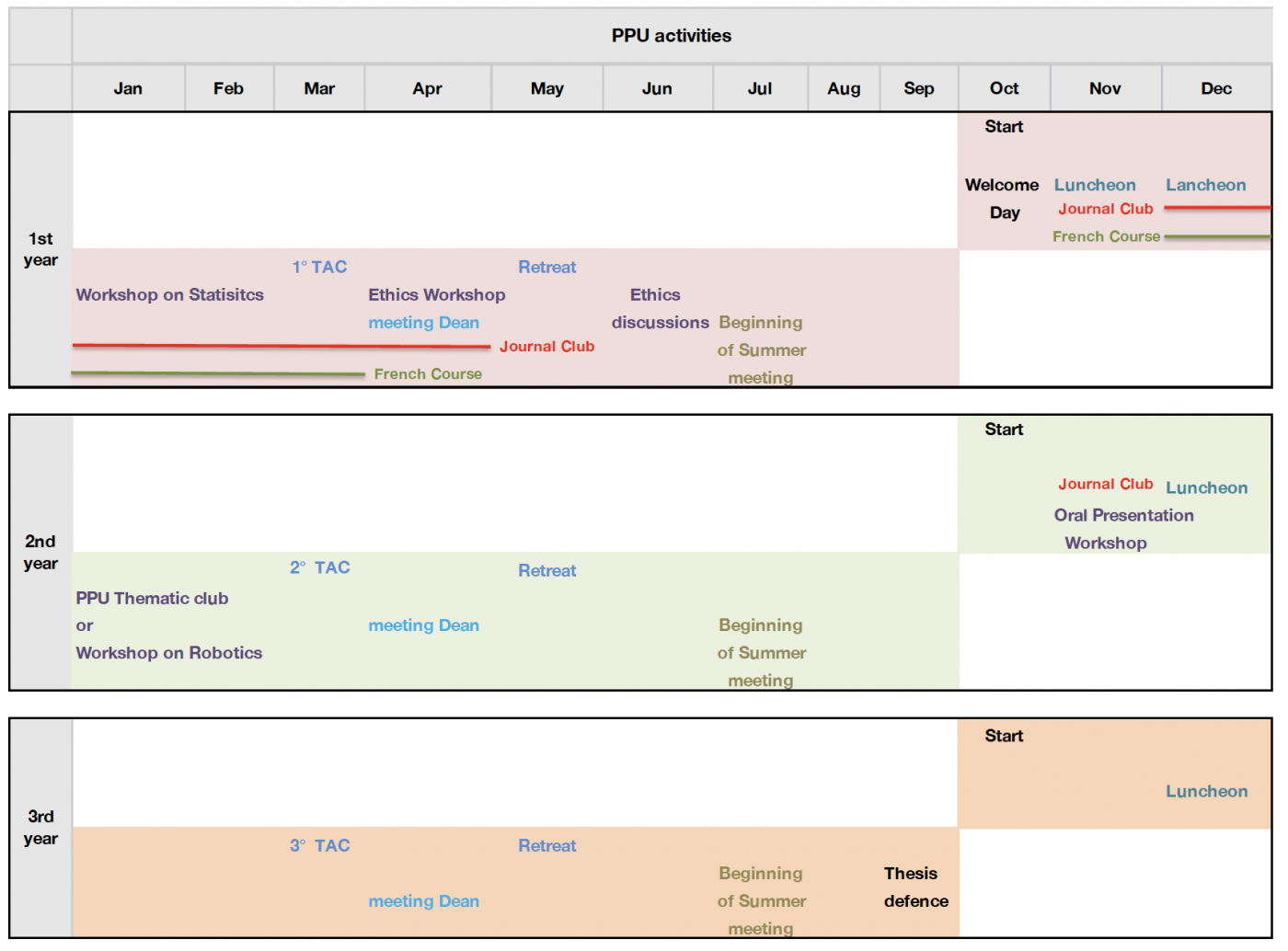
GRADUATE OFFICE
Financial support and benefits.
Students will be employees of the Institut Pasteur with a three-year working contract.
The students will receive:
1) a monthly salary of 1.800€ comprehensive of social benefits (national health care, health insurance, etc.);
2) a “welcome bonus” of 4.000€ gross which will be paid at once with their first salary;
3) the reimbursement of one round-trip ticket per year (train or plane tickets in eco-class, up to 1.300€ for non-continental europan countries, up to 350€ for continental european countries) for the country of origin, for the duration of the program, to be taken during the academic year (with no possibility of postponement or refund if not taken).
There is no financial support for family members.
The PPU program offers:
- Assistance in housing. Upon arrival in France, PPU students may rent a place at the Cité Universitaire for 6 months (possible extension to 12 months because of current sanitary constraints). Additional information is provided to facilitate housing after that period. (Housing)
- 750€ per year per student to cover expenses related to attending international conferences or summer courses.
- A “Tutor” is assigned to each student who together with the PPU and Graduate Offices acts as an advocate for the student scientific education and provides assistance in any practical matters. The tutors are usually scientists working on the campus in a different department with respect to the student-hosting laboratory.
- Help in administrative issues, individualized or grouped professional training classes, and counseling by the Human Resources Department.- Access to all amenities at Institut Pasteur and the universities for reduced fees, including:
- Subsidized access to the cafeteria for lunch;
- Conferences on the campus;
- Sports within ASIP (Sport Association of Institut Pasteur);
- Rebates on cultural events, cinema and theater tickets and more from the "Conseil Social et Economique (CSE)" (Institut Pasteur employee benefits committee);
- Free WiFi on the campus. Students must abide by the institut’s rules concerning internet access and use;
Free access to a state-of-the-art Center for Scientific Information (CeRIS) with hundreds of scientific journals, the most extensive resources for microbiology, immunology and molecular biology in France and the unique World Health Organization publication repository in the country.
Please note that only students residing in Paris will benefit from complete handling of administrative issues by the Institut Pasteur.
For information:
- Financial support for the fellowships and the educational training comes from the Institut Pasteur and the European Community. In addition, the program benefits from support by other Institutions, including partner institutions of the Institut Pasteur, some governmental agencies and private foundations. (fellowships)
Starting January 2019, France adopted the pay-as-you-earn withholding tax system, meaning taxes are directly deducted from your salary. Tax information sessions are organized to explain students how to declare taxes in France.
See Previous and current students
Application (student).
Application (Host lab)
University - Doctoral School
Ph.d. program, life in paris.
What is the application process?
The application process consists of three steps: (i) the candidate must select and be selected by a host laboratory, keeping in mind that each advisor can present only one candidate. ; (ii) applications are filled out jointly by the candidate together with the host laboratory ("joint application") and are uploaded in the PPU dedicated platform (link available in the Current call section at the opening of the call). Applications are evaluated by an Admission committee that selects candidates for an interview at the Institut Pasteur; (iii) these candidates are invited for a four-day interview on the Institut Pasteur campus (or in a visio-conference format during the sanitary crisis) and present their past and future works to the Admission committee (see details in application information).
When does the application process begin?
The application period starts in mid-September. Prospective students are free to contact the lab (s) they are interested in at any time during application period.
When is the application deadline?
The deadline for joint application is usually in November. The exact dates and deadlines for each application period will be indicated on the current call page when a call is opened. Candidates are strongly encouraged to contact host laboratories as early as possible and well before the application deadline.
What is the first step in the application process?
The first step is to identify and contact a host lab in which you would be interested in doing your Ph.D. research. Projects and contact information for laboratories recruiting prospective Ph.D. students at the Institut Pasteur are posted on the PPU dedicated platform (link available in the Current call section at the opening of the call). Further information about laboratories and their research interests is available on the website RESEARCH . Because laboratories receive many applications and can present only one candidate, the first step of the selection process is to be chosen by a host laboratory. Please keep in mind that a candidate can only choose up to 4 host labs to apply to.
May I contact a lab that is not listed on the page of the current call?
You are free to contact any lab of your choice at the Institut Pasteur in Paris. The list of all laboratories at Institut Pasteur can be found on the Institut Pasteur website . However, the laboratories not listed on the current call page are are not proposing a project for the PPU Program, and may not search for a student in the upcoming academic period.
May I contact several host laboratories?
Yes. You may contact as many host laboratories as you wish, but you may apply only to a maximum of 4. However, if you are selected by more than one host lab for application to this program, you will be required to choose only one.
Does my host laboratory have to be located at the Institut Pasteur in Paris?
In the majority of cases yes, only few host laboratories are located at walking distance from the Institut Pasteur (Institut de l'Audition, IDA)
What are the degree prerequisites for consideration of acceptance in the Pasteur - Paris University International Ph.D. program?
A Masters of Science (M.Sc.), or an equivalent degree that would formally qualify you to register for a Ph.D. program in the French University system, is required to be considered for acceptance into this program. In some cases, students who have carried out an undergraduate research project in addition to their B.A. or B.Sc. degree may qualify. The host lab can inquire into this with its affiliated doctoral school.
By what date must I have finished my M.Sc. or equivalent degree in order to enroll in the PhD program?
You do not need to have finished your M.Sc. or equivalent degree prior to the application deadline. The degree must be completed by the summer of the following year, in order to register at the Paris Universities. A copy of the diploma or a certified written attestation of completion must be available before the start of the program (October).
Is there an age limit or a time limit between the date of my Master’s degree and filing the application?
The PPU doctoral program does not have an age restriction, but most accepted candidates are 24-26 years old and start their Ph.D. within a year of finishing their M.S., a few within 3 years.
Do I need to apply directly to the University?
No, you do not. Your application must be uploaded in the PPU dedicated platform. If you are accepted into the program, you will receive information on when and how to register with the university/doctorla school to which your host laboratory is affiliated.
Are there country-specific requirements for international applicants?
What are the language requirements?
The program is run in English and therefore fluency in English is required. TOEFL or other language proficiency scores may be indicated when submitting your application. No knowledge of French is necessary. French language classes will be part of the Ph.D. program curriculum.
Are specific standardized test scores required and where should they be sent?
No. Graduate Record Exam (GRE) scores are welcome but not required.
If I have done my university studies outside of France, but will earn my Master’s degree from a French institution, am I eligible to apply?
No. A master degree (or equivalent) delivered by a university located outside of France is required. A double Master degree is acceptable only if a French and non-French institutions are delivering each a Master degree.
I already have been granted a Ph.D. fellowship. Does this guarantee a place in the program?
No. All applicants are evaluated by the Admission Committee solely on the basis of their qualifications and scientific potential. All applicants must successfully pass the application and interview procedures in order to be eligible. Moreover, under French law, the external funding must constitute employment or the funds must be allocated to the Institut Pasteur to pay the candidate’s salary.
How and when will I receive notification regarding interviews?
The selection for the interview is highly competitive. The candidates selected for an interview will be notified by email toward the end of December or beginning of January.
How and when will I receive notification regarding acceptance to the Ph.D. program?
The candidates selected for the program will be notified by email shortly after the interviews, generally within 1 week.
Where do I send application materials?
Candidates do not send applications themselves. Joint application (candidate/host lab) must be uploaded on the PPU dedicated platform
Is it possible to check the status of my application once it is filed?
Is there an application fee?
Application (Host laboratory)
Can the host laboratory present a candidate without having posted a research project on the current call page?
No, all laboratories searching for a Ph.D. student for the PPU program must upload a project on the dedicated platform. Teams that have already chosen a candidate must still upload a project and contact [email protected]
Can a host Laboratory present multiple candidates?
To present a candidate to the PPU program, thesis advisors must hold an HDR (Habilitation à Diriger les Recherches) diploma. If there are multiple scientists holding an HDR in a host laboratory, each one can propose one project and submit one application with one prospective Ph.D. candidate (joint application).
With which universities must the research group be affiliated?
To participate in the Pasteur - Paris University International Doctoral program, a host laboratory must be affiliated with a Doctoral School of one of the three partner Universities of the program: Université de Paris, Sorbonne Université, and Université Paris Saclay.
Can an advisor that already has a Ph.D. student in the program present another candidate for the following application period?
No advisor may have more than one Ph.D. student within the program.
What information should be contained in the host laboratory introduction letter?
The host laboratory must certify that it is willing to host and supervise the prospective Ph.D. candidate if he/she is accepted into the program. The host laboratory should explicit why it proposes the candidate for its laboratory and for the PPU program.
Following the interview, when will I be notified of acceptance into the Ph.D. program?
The candidates selected for the program and their host labs will be notified by email shortly after the interviews, generally within 1 week.
How long is the interview stay in Paris?
Four days. The exact dates are indicated on the Current Call Page. During the sanitary crisis, the interview week is done through visio-conference for 4 days, in the same format as the one on site (see below).
What is involved in the interview week process?
During your stay you will visit your host laboratory to meet and discuss the research project with the prospective advisor and laboratory members. Individual interviews will be performed by Faculty members to assess each candidate’s qualifications for the PPU program. You will tour the Institut Pasteur and its core facilities, and meet with current PPU students and the PPU program staff. To see what scientific life is like at the Institut Pasteur, meetings are also planned with scientists and other Ph.D. students at meals and in informal social events. You will be interviewed by the Admission Committee, during which time you will present your Master’s degree research (results or in progress) and planned Ph.D. project.
Will travel and accommodation expenses for participating in the interview week be covered by the PPU Program?
What is the connection between the Institut Pasteur and the universities of Paris?
The Institut Pasteur is a non-profit research foundation that has maintained a long tradition in teaching. Several major science courses organized at the Institut Pasteur are integrated into the master degrees of several Parisian universities. For the PPU program, the Institut Pasteur has developed a special partnership with Université de Paris, Sorbonne Université, and Université Paris Saclay. This partnership means that students are employed by the Institut Pasteur and registered at a Parisian university. Students enrolled in the PPU program perform their research project on the campus of the Institut Pasteur. The universities will deliver the diploma, on which will be indicated the co-operative nature of this program through the title “Pasteur - Paris University International Doctoral Program.
At which Parisian university will I register?
Your laboratory must be affiliated with a doctoral school of one of the three partner universities. You will be registered at the same doctoral school and university as your research team.
What is a doctoral school?
A doctoral school is an association of research teams preparing Ph.D. students to a career in research through an educational program for the research profession. Each French university has several doctoral schools which are specialized in specific scientific domains. To be enrolled in a Ph.D. program, the student registers at a doctoral school.
Will the courses differ depending on my university affiliation?
Completion of a Ph.D. at a French university requires participation in several scientific courses and professional trainings. All students enrolled in the PPU program will participate in a similar number of courses and training hours, regardless of the university affiliation. To fulfill this requirement, students will be able to choose among a number of courses that are the most appropriate and interesting for their individual training, including the ones that are required by the doctoral school.
Who will deliver the Ph.D. diploma?
The university will deliver the diploma, which will indicate the co-operative nature of this program through the title “Pasteur - Paris University International Doctoral Program”.
What will be the approximate starting date for each new academic year?
The program starts the first week of October. Arriving in Paris between September 15 and October 1 will help to familiarize yourself with the city, the housing and the university, as well as to prepare all the necessary paperwork. The exact arrival date may vary from student to student and will depend on the status of his/her visa application (if you are not from the European Community).
What is the expected duration of the program, from beginning to the defense of the Ph.D.?
Students are expected to finish their Ph.D. in three years. Sometimes extensions may be granted when required and justified and are subject to approval from the doctoral school. Extensions will only be given by universities if external funding is available. The PPU program only provides funding for three years.
Can you summarize the practical and academic offerings of this Ph.D. program?
The program aims to meet the highest standards for education and training of Ph.D. students in the world. While spending most of the time working in individual research projects in a laboratory at Institut Pasteur, students benefit from excellent scientific courses and professional development trainings. The students will also be able to attend exciting seminars and participate in interactive workshops, annual retreats and journal clubs. The students within this program will be well supported by the staff, acting as advocates for the students’ scientific education and to provide assistance in any practical matters. A thesis advisory committee (TAC) will follow the students’ research progress and will offer guidance as needed in addition to that provided by the laboratory in which the student is working. The program offers a salary covering living costs and including health insurance. The program also offers assistance in obtaining housing upon arrival in France. Financial support for attending international conferences or summer courses will also be provided.
Does the Ph.D. program also include a Master’s program?
Who do I contact if I have further questions?
If you have further questions, do not hesitate to contact [email protected]
Is housing provided?
Upon your arrival in Paris, you will be able to stay in Institut Pasteur reserved housing at the Cité Internationale Universitaire de Paris (CIUP) for 6 months (up to 12 months during the sanitary crisis). The rent is paid by the student. This is a beneficial time to look for housing. The real estate market is tight and students are encouraged to actively seek housing rental opportunities. They can apply independently to continue living at the Cité Internationale Universitaire de Paris (CIUP) and to the international houses of their respective countries as well. ( Housing )
Is there additional financial support given for family and/or spouses?
Will I receive help with my Visa application and other paperwork?
Yes. The PPU, the Graduate as well as the Human Resources offices of the Institut Pasteur will provide assistance. A Hosting Agreement ("Protocol d'accueil") for visa application will be sent to students selected to enter the program from outside of the European Community. Precise instructions will be sent to all students accepted into the program about the paperwork that they need to complete and the steps they need to follow. The instructions must be followed carefully.
Does Institut Pasteur provide funds for travel and moving expenses when arriving in Paris?
No. However, a 4000€ one-time bonus is added to the first paycheck.
Is healthcare included in the salary?
Where can I find more info on healthcare?
- Skip to content
- Go to accessibility page

Undertaking a PhD in France
Are you considering doing your PhD in France? Below, discover everything you need to know. Learn more about the application criteria, project development process, and types of PhDs.
Advanced degree
In France, a PhD is the highest academic degree you can earn. Doctoral studies are a form of research-based training with the same value as professional experience. PhD students carry out research on a defined topic under the supervision of their thesis advisor(s).
PhD students are enrolled in doctoral programmes run by institutions of higher education (i.e., universities or grandes écoles ), but they are trained within research laboratories. Students carry out original scientific research either on their own or as part of collaborative projects; the results form the basis for their dissertations. Students must also go through a thesis defence in which they present their findings to a committee that judges the quality of their work. Those who succeed are awarded doctoral degrees.
Generally, earning a PhD requires 3 years of full-time research. One-year extensions may be granted under certain circumstances. In exceptional cases and for compelling reasons, a student may request a leave of absence of up to 1 year. Such requests are only granted once, upon approval by the establishment’s director. Any leave of absence is excluded when calculating thesis duration, given that the student suspends their training and research during that period.
To be eligible for doctoral studies, you must have a master’s degree. This requirement can be waived by an establishment’s director if approval is granted by the doctoral programme’s administrators. You need to show that you have an equivalent level of education or professional experience.
PhD programmes frequently have an international component. For example, doctoral students often take part in joint degree programmes or dual degree programmes, a situation that is facilitated under French law.

Status of doctoral students
In France, the status of doctoral students depends on their funding source. Anyone doing a PhD is officially recognised as a student because they must be enrolled in a doctoral programme at an institution of higher education. In addition, many are also salaried workers because they are contractual employees.
International doctoral students with foreign grants have the status of students in France.
There are different types of doctorates in France. Here are some common examples:
Traditional PhD
- 3 years of work in a single research laboratory
- Leads to a French degree
- Enrolment and thesis defence occur at a single institution
- Single thesis advisor (or co-advisors, if necessary)
Jointly supervised PhD
- Thesis jointly supervised by a set of co-advisors—one from the student’s main research laboratory (affiliated with the enrolment institution) and one from a separate institution, either in France or another country
- Enrolment and thesis defence occur at the institution affiliated with the main research laboratory
- Single degree granted by the above institution
- Thesis research might arise from a national and/or international collaboration
Dual degree PhD
- Thesis jointly supervised by a set of co-advisors, with research taking place in two laboratories
- Individual dual degree agreement ( convention individuelle de co-tutelle ) establishes a research framework
- Enrolment occurs at two institutions—one in France and one abroad
- Tuition is paid to a single institution
- Single thesis defence but two degrees (one from each institution)
Professional PhD
- Research carried out at a private company partnered with a publicly funded laboratory and its affiliated institution of higher education
- Thesis jointly supervised by a set of co-advisors—one from the company and one from the laboratory
- Work is split between the company and laboratory
- Student contractually employed by the company
- Degree is granted by the institution of enrolment
- Excellent opportunity to gain professional experience
Doctoral training
The first step in your doctoral studies is to enrol at an institution (university or grande école ) with an official PhD programme that is under the aegis of the French Ministry of Higher Education and Research. Such doctoral programmes are structured to provide a high level of personalised training and supervision during your thesis work:
- You are under the supervision of one or more thesis advisors
- You carry out your work within an affiliated research unit and take part in laboratory activities
- You can participate in courses and seminars designed to establish a solid scientific foundation and guide the development of your research
Your thesis committee will ensure your studies are advancing smoothly, notably by evaluating your training conditions and research progress. To enhance your employability, your doctoral programme and thesis advisor will
- Encourage you to attend national, European, and international conferences and publish in national, European, and international journals
- Design a training programme compatible with your PhD project
- Help you exploit your skills and training
In France, you can write and defend your thesis exclusively in English. However, your thesis summary must be translated into French.
Your PhD project
To begin your PhD, you must find a host research laboratory, a thesis topic, a thesis advisor, and funding. We recommend that you begin this process at least 1 year before your target start date. You can begin by looking at the list of thesis topics posted by doctoral programmes and institutions of higher education. You can also directly contact laboratories working in your area of interest. As a general rule, your future thesis advisor will help you with funding.
International students may be able to find other sources of funding, such as fellowships from embassies, the governments of their home countries, and/or partnership agreements between institutions.
Enrolling in a doctoral programme
Once you have resolved all of the above, you must submit your project to your doctoral programme for approval. Your thesis advisor and the laboratory director will evaluate the quality and feasibility of your proposal.
If their assessment is favourable, the director of the doctoral programme will allow you to enrol. You will be informed of the decision by the head of the doctoral programme (the university or grande école president). The French Ministry of Higher Education and Research establishes the amount of tuition paid by bachelor’s, master’s, and doctoral students. Tuition levels are the same everywhere in France.
In 2023, annual tuition for doctoral students was €380. There is also a campus activities fee (CVEC) of €92. In certain cases, both may be waived.

Useful link
- Getting a PhD in France—directory of doctoral schools
Related articles
- Doctoral studies at INRAE
- Joining INRAE
- Working conditions & benefits
- Publishing results & managing data
Last update: 20 March 2024

- DOCTORAL SCHOOLS DIRECTORY DOCTORAL SCHOOLS
- SUBJECTS (PHD, MASTER'S & POSTDOC TRAINING) SUBJECTS
- CALLS FOR PROJECTS CALLS
Academic specialties
Language science and didactics Comparative literature Applied foreign languages Ancient languages and literature History of books and publishing Languages, literatures and intermedialities French language, literatures and francophone literatures European and international literatures Anglophone languages, literatures and civilizations, Irish and American studies, cultural studies Germanic languages, literatures and civilizations Slavic languages, literatures and civilizations Romance languages, literatures and civilizations (Spanish, Italian, Portuguese) Chinese languages, literatures and civilizations Arabic languages, literatures and civilizations Breton language, literature and culture Applied arts Plastic arts Performing arts (cinema, theater, dance) Archaeology Architecture Aesthetics and philosophy of art Musicology Art sciences History of the arts (ancient, medieval, modern, contemporary, contemporary, architecture)
- Total number of PhD students registered in the school : 222
- Number of foreign PhD students : 53
- Possibility to write the dissertation in English
- English as Working language
- Methodological courses in English
- Courses and conferences in English
- Apply to predefined thesis subjects
- Required level French : B2
- Before applying, candidates need to contact a thesis supervisor
- The thesis application form is available in June
- It is submitted to the doctoral school and examined by the doctoral school council
- candidates are notified of results
- Optional funding
- Contact for registration & informations Mrs Valérie MARIE-COHIER +33299141143 [email protected]
Center for international mobility Rennes
- Doctoral college Collège doctoral de Bretagne
- Description
- Laboratories
Presentation
International, application, welcome services, art history and criticism - ea 1279, arts: practices and poetics - ea 3208, center for breton and celtic research - ea crbc, center for the study of ancient and modern languages and literature - ea 3206, center for the study of correspondance and diaries of the 19th and 20th centuries - ea 7289, center for the study of languages, territories and cultural identities - brittany and minority languages - ea 202224, english-speaking countries: communities and writing - ea 1796, heritages and constructs within the text and the image - ea 4249, interlingual research center: memories, identities, territories - ea 4327, research group on the invention and evolution of forms - ea grief, number of phd students 222, internationalization of the doctoral school.
Select your language

- Institutions / Laboratories
- Statutes et reports
- Our commitments
- Chairs of excellence
- Invited Professors
- Other programs
- Open FSMP calls for applications
- External calls for applications
- Horizon Maths
- Mathématiques en mouvement
- Events for the general public
- International conferences
- Other events
- Resources for the general public
- Newsletter Archives
- Surveys and reports
- Soft skills development
- Publications
- Welcoming of laureates
Doctoral programs
Mathphdinfrance.
The FSMP is a partner in the COFUND MathPhDInFrance international docroral training program, cofunded by Marie Sklodowska-Curie Actions within the framework of the European Horizon Europe programme “Marie Sklodowska-Curie Co-funding of Regional, National and International Programmes” (Grand Agreement n°101126554). MathPhDInFrance offers grants for co-tutored theses between a laboratory in the Paris region and one in another. Read more ...
MathInParis2020
The international Doctoral Training in Mathematical Sciences in Paris - MathInParis2020 - Cofunded by Marie Sklodowska‑Curie Actions within the framework of the European Horizon 2020 program (Grant Agreement n° 945332), offered 40 PhD fellowships through two calls in 2020 and 2021. Read more...
Stays for PhD students
The Fondation Sciences Mathématiques de Paris finances, for doctoral students who are members of a laboratory affiliated with the foundation , scientific research stays in external laboratories (French or foreign) for periods of at least one month.
Read more...

- Statutes and reports
- International Conferences
- Invited profesors
- Documentation
- Other resources
- Calls for applications
- Practical information
- Reimbursements
Privacy Policy - Legal Notice - ©FSMP - Contact - Magiris Design

- An unforgettable adventure
- Educational excellence in France
- Study at the heart of Europe
- Enjoy numerous benefits
- Industrial dynamism and French innovation
- The art of living à la française

- French system
- Higher education institutions
- French degrees, LMD system and equivalences
- Cost of studies
- Quality of degrees and institutions
- Online or distance programme
- Scholarships programmes
- Scholarships for French students or students living in France
- Welcoming of students and researchers in exile

- Student and Campus Life Contribution (CVEC)
- Reception services in your city
- Prepare your budget
- Bank account
- Working while studying in France
- Learning French
- Finding a student sponsor
- Organising your stay as a scholarship holder
- Being a student with a disability in France

- French regions
- French language
- Getting around
- Join the France Alumni network
- Finding work in France
- How to start a company in France

- Le séjour de recherche
- The role of Campus France
- The tools of Campus France for international researchers
- Research Labs
- Mapping French research
- Outstanding French researchers
- Overview of French research by field
- Excellence of French research in videos
- Accueil des étudiants et des chercheurs en exil

- What is involved in a Doctorate in France?
- Doctoral Schools directory
- PhD subjects
- Pre-Doctorate programmes
- How to enrol in a Doctorate
- How to finance your Doctorat (PhD)
- Use the "Research" portal
- FAQ – Doing my Doctorate in France

- Study in a Post-Doctorate in France
- Join a summer school
- Come to France with the status of invited professor

- Reception programmes and doctoral student associations
- Apply for your visa / Validate your residence permit
- Prepare for your arrival in France
- Finding accommodation in France
- Social Security for doctoral students and researchers
- Living in France

- Programs with Sub-Saharan Africa countries
- Programs with Asian countries
- Programs with European countries
- Programs with Oceania countries
- Programs with American countries

- Campus France missions
- Campus France organisation
- Campus France activities by geographic area
- Events organised by Campus France
- Public procurement
- Mobile applications

- Operation and governance
- Joining the Forum
- Member benefits
- Committees and workshops
- Updating your information online

- France Alumni network
- European projects
- Choose France, La stratégie d'attractivité des étudiants internationaux
- The French+Sciences program

- Campus France expertise
- Make Our Planet Great again
- Le programme « Partenariats avec l’enseignement supérieur africain »
- Le programme de bourses IsDB-France
- Scholarships program for Syrian students in exile in France
- Pakistan: Higher Education Commission scholarships programmes
- Les bourses pour les étudiants français ou résidant en France

- L'accueil des étudiants internationaux
- Label Bienvenue en France
- Nos événements
- Le réseau des responsables de l'accueil
- L'accueil des étudiants réfugiés et en exil
- L'accueil des étudiants en situation de handicap
- Les mémos de Campus France
- Afrique du Sud
- Burkina Faso
- Congo - Brazzaville
- Côte d'Ivoire
- République Démocratique du Congo
- Corée du Sud
- Ouzbékistan
- Philippines
- Territoire de Taïwan
- Biélorussie
- République tchèque
- Royaume-Uni
- Arabie Saoudite
- Émirats arabes unis
- République dominicaine
- Resources center
What is involved in a Doctorate in France
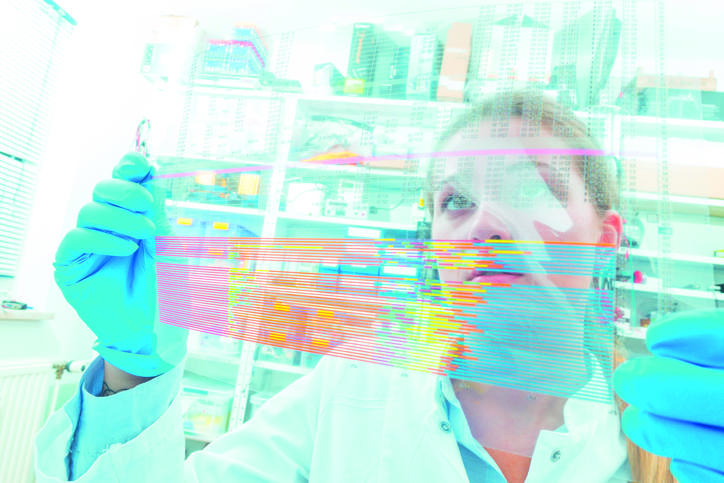
The Doctorate involves training through research, in a research laboratory, and is organised by one of the 270 doctoral schools. The work is completed with a viva voce of a thesis in front of a jury.
Doctorate or Thesis?
In French, the word "thesis" ( thèse ) is often mixed up with the word "Doctorate" ( doctorat ).
The Doctorate is the name of the degree that you obtain. It is the highest degree awarded by the universities and internationally recognised. In French, the period spent preparing the Doctorate is often called the " thèse "; people talk about enrolling for a " thèse ", which means enrolling for a Doctorate.
The thesis refers to the document that you have to write and present before a jury to obtain your doctoral degree. There is a tendency to say " faire une thèse " (doing a thesis) instead of doing a Doctorate, as the thesis is the biggest part!
And you have to do your Doctorate under the supervision of a "Thesis Supervisor", who will guide you throughout your Doctorate. You must have selected a thesis supervisor, who must accept to supervise you, before you start your Doctorate.
Where to do your Doctorate
A Doctorate can be done in all of the universities as well as in most engineering, management and even art Grandes Ecoles, which are generally associated with a university. The Doctorate is the highest international degree and is awarded after 3 years (in the natural and technological sciences) to a maximum of 6 years (in social sciences and the humanities).
In a research laboratory, with a thesis supervisor

The Doctorate in the natural and technological sciences takes place full time in a research laboratory, in daily conjunction with your colleagues.
In the arts and humanities, the work is often more individual, and does not require a daily presence in a research laboratory. You will often be working from home, but will be able to meet your thesis supervisor on a regular basis and work in the university or school library.
Nearly 15,000 Doctorates are conferred in France each year: 46% in science and technology, 20% in Biology-Medicine, 20% in the humanities and 14% in the social sciences.
The Doctoral schools

The Doctorate is organised by "Doctoral schools". There are 270 Doctoral schools attached to 2,500 public research laboratories throughout the entire country. Each Doctoral School has several research laboratories.
The Doctoral Schools organise and supervise the doctoral students, in particular with additional classes in methodology, communication, writing scientific papers, starting a company, intellectual property, etc. These additional classes correspond to approximately 150 hrs of classes spread over the total duration of the Doctorate.
The Doctoral schools also organise your enrolment in a Doctorate, and, in collaboration with your thesis supervisor, monitor your progress.
You will find the list of Doctoral schools in our directory.
Writing and defending your thesis
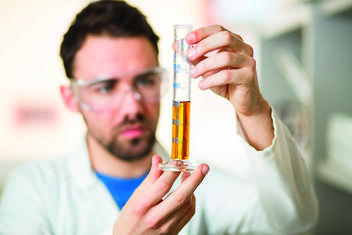
In addition to experiments and studying, you will have to write a thesis, which is a document at least 200 pages long. In your thesis, you can also include articles that you have published in technical journals. Writing it proves that you have acquired a certain number of skills: deductive reasoning, critical ability, scholarship, etc.
Once the thesis is finished, it must be approved by 2 examiners, and you will then have the right to "defend" your thesis, meaning that you will have to present it orally before a jury. In this oral examination you present your research method and results before debating them with the members of the jury. The viva voce examination, or thesis defence, is generally public.
The viva voce, and the thesis itself, will be published by the university and on the site www.theses.fr .
The different types of Doctorates
The single doctorate.
This is the most common way of doing a Doctorate, involving 3 to 6 years in the same research laboratory. At the end, you will obtain a French degree. Enrolment and the viva voce take place in a single establishment, and the thesis is written under the direction of a single supervisor.
The co-supervised Doctorate
The co-supervised Doctorate means that you have 2 thesis supervisors. One thesis supervisor in the main laboratory, in the establishment in which you are enrolled, and one other thesis supervisor, generally in another establishment, in France or in another country.
You enrol and have the viva voce only in the main thesis supervisor's institute, which means that you will be awarded the degree by this university.
It is an interesting and easy approach that lets you do your Doctorate in the framework of international collaboration.
The joint Doctorate
The joint Doctorate is a co-supervised Doctorate that means you receive a degree from each of the universities of the 2 thesis supervisors.
It is done within a French establishment and a foreign establishment, and results in two degrees conferred by each establishment (and sometimes a single joint degree, with the name of the 2 establishments).
You enrol in both establishments through a degree proposal establishing how the joint Doctorate will function.
Everything must be stated in this document: in which of the two establishments will the viva voce take place? Who will pay the jury's travelling expenses?
Each year, the doctoral student must enrol in both establishments, but only pays in one. This must also be stated in the joint Doctorate document.
The in-company Doctorate (CIFRE)
Doing a Doctorate in a company is an excellent opportunity to enter the world of employment. The CIFRE ( Convention Industrielle de Formation par la Recherche - the Industrial Agreement for Training through Research) lets you do your Doctorate in a company, in conjunction with a public university. In this case, a bit like with co-supervision, you will have a thesis supervisor, a university professor, and a supervisor from the company. You are employed by the company, which receives a grant from the State, and you receive a degree from the university.
Some subsidies for nationals of other countries, such as India and Morocco, and some specific programmes like EIT Digital encourage the in-company Doctorate.
The European Joint Doctorate
The European Joint Doctorate was established in Horizon 2020 , a 2014-2020 European Union programme for financing research and innovation, as part of the Marie Skłodowska-Curie actions.
It is open to all foreign students, and lets them obtain a 3-year Doctorate. The Doctorate is done at 3 European establishments in 3 different countries.
Doing a Doctorate in English
In the natural and technological sciences, you will not be required to have a particular level of French when doing a Doctorate. Discussions with the research supervisor take place in English. The doctoral student can take French classes while in France, but the thesis can be written and defended just in English. Only the abstract must be translated into French.
In the social sciences and humanities, a good level of French is often required (generally level B1 or B2). As for commerce, marketing, political science, communication and law, it is sometimes also possible to write your thesis in English, but that depends on the institute.
Related contents

Recommended items

Follow the main steps to come study in France
Want to Get your Dissertation Accepted?
Discover how we've helped doctoral students complete their dissertations and advance their academic careers!
Join 200+ Graduated Students

Get Your Dissertation Accepted On Your Next Submission
Get customized coaching for:.
- Crafting your proposal,
- Collecting and analyzing your data, or
- Preparing your defense.
Trapped in dissertation revisions?
Phd by publication, published by steve tippins on may 21, 2024 may 21, 2024.
Last Updated on: 21st May 2024, 10:43 am
PhD by publication, also known as “PhD by portfolio” or “PhD by published works,” is a relatively new route to completing your dissertation requirements for your doctoral degree. In the traditional dissertation route, you have to write one document ranging in length from 100-250 pages, on a research topic. The PhD by publication route has evolved to where, if you get a certain agreed-upon number of publications in peer-reviewed journals, you have met the requirements of a dissertation and then can graduate with your doctorate.
What are the Requirements of PhD by Publication?
While a dissertation is relatively standard in format, the PhD by publication route can have variations based on the school that you’re attending. Generally, if you get three articles published in journals, you have met the requirements. From here, it varies by school.
There are schools that may want your publications to be in Q1 (first-quartile) journals. In other schools, the publication requirements could be Q2 or possibly any level of peer-reviewed journal. There are even schools that will consider conference presentations at selected conferences to count as a publication
It’s important to know these requirements ahead of time, as they can affect how long the process takes. Journals with higher ratings typically take longer to get through the publication process.
There are schools that will also require you to put the name of your chair and possibly other committee members on accepted publications as co-authors.
At a number of schools, getting the 3 papers published is necessary for graduation but not sufficient. It’s not uncommon for them to require you to package them in a portfolio that includes an introduction, the articles, and discussion about future research as part of the overall document.
While this route may be the optimal route for you, you want to know the exact requirements before moving forward. There may be committee members who are not fully aware of university guidelines and requirements for this approach, and you want to be sure that you don’t head down this route and then find out later on that there are different requirements from what you believed at the beginning. Doing so can slow you down a lot. You also have to have your committee fully endorse this route before the process begins. Another way of saying that is, avoid surprises.
Over 50% of doctoral candidates don’t finish their dissertations.
Advantages of PhD by Publication
The advantages of dissertation by publication include:
- You get multiple publications to add to your CV
- Once you have committee approval for the topic, then most of the approval is out of the hands of your committee
- Depending on the types of journals that you accept, acceptance can be relatively speedy
- May allow you to look at an issue from multiple perspectives and broaden your and the academic community’s understanding
- At some institutions, you may be able to collaborate with other authors on the process, potentially enhancing your academic reputation
If you are headed into the academic world after your dissertation – if you’re looking for a tenure track job – the PhD by Publication route may be a good option for you in that you emerge with a minimum number of publications in peer-reviewed outlets. This can help schools understand that you have the ability to publish multiple times.

Disadvantages of PhD by Publication
Disadvantages include:
- You are at the whim of the acceptance cycle at journals
- Reviewers are not members of your committee and may not be as supportive as a committee member might be
- There are still many people who are not aware of or familiar with this path to completion
- The peer review process can be challenging.
- You have to be careful about self plagiarism and self citation
- While a dissertation allows scores of pages to develop material, journal articles are typically limited in length, so you may not be able to expound as deeply in your articles as you would be able to in a traditional dissertation
PhD by publication is not a simpler route or one that you can do on your own. First of all, you have to make sure that your school will allow this for you instead of a traditional dissertation.
Second, you do not eliminate the role of a committee by pursuing this route. Even in the PhD by publication route, your committee has to approve the research. So it’s not a route to avoid committee oversight or committee involvement. However, if you’re aware of the potential challenges, it can be a great route for the right person.
Is a PhD by Publication Worth It?
Is this a good route to follow? I use the adage, “the only good dissertation is a done dissertation.” Considering that, this is a great path to follow if:
- You’re fully aware of the requirements upfront,
- You have committee buy-in
- You’re ready to live with the acceptance cycle of journals
This route may not be worth it if:
- You don’t have three different approaches to a topic or three different samples you want to explore in your journey
- Your committee does not wholeheartedly support this path forward
Neither route – traditional dissertation or dissertation by publication – is easier than the other. They both have limitations and advantages, and you want to make sure you’ve explored both options, as well as any potential issues with either approach.
Frequently Asked Questions
You can do this in most disciplines as long as your institution allows it. It may not be known by many people at the institution that it’s an available option, so it doesn’t hurt to ask. Start with your committee, then ask the head of your doctoral program, and then go to the registrar’s office.
Neither approach is better or faster. It all depends on the level of journal you need to approach and their review cycle. If there is a long review cycle and you are requested to revise and resubmit, then you will need to go through the review cycle twice or even three times. I’ve seen this process take 3-4 months, and I’ve also seen it take several years for those trying to make it into the top-tier journals.
Submitted papers at journals typically range from 20-45 pages. This depends on the journal and their submission requirements.
Most doctoral students at traditional institutions have funding for a certain number of years, including their dissertation process. The type of dissertation, as long as the institution supports that route, should not affect funding. External funding depends on the requirements of the funder, but some may support students doing PhD by publication.
The route will not impact the cost, the cost is only impacted by the time it takes you to complete it.
Steve Tippins
Steve Tippins, PhD, has thrived in academia for over thirty years. He continues to love teaching in addition to coaching recent PhD graduates as well as students writing their dissertations. Learn more about his dissertation coaching and career coaching services. Book a Free Consultation with Steve Tippins
Related Posts

What Does Ph.D. Stand For?
“What does Ph.D. stand for?” This is a question that can be answered several different ways. First of all, typically Ph.D. stands for doctor or doctorate in philosophy. I know that can be a little Read more…

A Professor’s Top 3 Pieces of Advice for Ph.D. Students
When it comes to getting a Ph.D., there is no one-size-fits-all approach to ensuring success in graduate school. Every student must find their own path to navigating the most rigorous academic experience that most people Read more…

PhD Stipends: All Your Questions Answered
What are PhD stipends? When you enter a PhD program, you can also get financial support in the form of tuition reduction, free tuition, and PhD stipends. That means compensation for work you’ll do, such Read more…

IMAGES
VIDEO
COMMENTS
PhD by Research Duration: 18 to 36 monthsFEES: 18 000 Euros per year (non-subject to VAT)Full-time or part-time online Retention rate: TBDPlacement rate: TBD Introduction When the mentor is satisfied that the work is ready for examination, a report is given to the Research Committee for their recommendation and for external moderation. External moderation will […]
The PhD application is open to students with a Research Master's degree, a postgraduate degree (Diplôme d'Etudes Approfondies - DEA) or an equivalent degree (bac +5). There must be a match between the candidate's graduate studies and the discipline of the requested doctoral programme. ... In France, joint theses are governed by the amended ...
At the national level, once fully operational, Université Paris Cité will offfer 5% of all PhD degrees in France. Université Paris Cité is committed to a doctoral policy aimed at research training and training by research. It trains future researchers and teacher-researchers as well as future high-level executives. Social Sciences - ED 624.
The international dual PhD degree programme promotes doctoral mobility and scientific cooperation. It is an unique opportunity for a PhD student enrolling in the first year of a thesis, to carry out his/her research work under the responsibility of at least 2 PhD supervisors (Université Paris Cité - partner university) for the entire duration of the PhD.
Doctorat par publication pour les chercheurs occupés reconnus et les professionnels à temps plein qui ont publié des travaux universitaires ou l'équivalent. Institut Avrio. Tweeter. Doctorat par publication en gestion, économie, éducation, psychologie, sciences sociales, santé, droit et relations internationales, gestion de l'environnement !
PhD by Publication. A PhD by publication is a degree awarded in recognition of an extensive amount of research published in numerous formats or journals. Unlike a conventional doctorate, you are not expected to undertake a new research project. This page will give a simple overview of what a PhD by publication is, and how to get one.
Publications by PhD students and young doctors (fr) AGENDA. 21 / 05. Soutenance de thèse de M. Jules VILLA - Programme de Science politique. Our programmes. Master's Programmes. ... Julie Madon, Master's and PhD in sociology. Address / phone. 27, rue Saint Guillaume - 75337 Paris Cedex 07. Phone: +33 (0)1 45 49 50 50 | +33 (0)1 42 22 31 26 ...
OverviewIn 2009, the Institut Pasteur, the world leading biomedical research institute founded by Louis Pasteur in 1887, inaugurated the Pasteur Paris-University (PPU) international doctoral program in collaboration with several major Parisian science universities for students holding a Master degree (or equivalent) from a university outside of France and who have not worked or resided in ...
Application process for a PhD in France. Applications for PhDs in France are similar to most other countries. You will either be applying for an advertised project or submitting your own research proposal. However, the application process differs depending on your nationality. For EU/EEA students there are no specific pre-application procedures ...
Affordability - PhD fees in France are fixed by the State, and international students pay the same amount as French students, making it one of the more affordable study destinations in Europe. Specialisations - The French higher education system is proud of its specialisations. Many institutions, like the Grandes Ecoles and Schools of Arts ...
NEOMA Business School's PhD in Management provides you with personally-tailored training, courses, and instruction to obtain the knowledge and skills you need on an international, academic career in the fields of business administration and management. Ph.D. / Full-time / On Campus. NEOMA Business School Rouen, France.
Category (PhD / Master's / Postdoc) -- Category -- Master Internship Doctorate Post-Doc CDI Other -- Doctorate type -- Full Doctorate Joint Supervision Doctorate Sandwich Doctorate Doctoral Programme
A Doctor of Philosophy by publication (also known as a Ph.D. by Published Work, PhD by portfolio or Ph.D. under Special Regulation; also a thesis by publication, a thesis with publications, a publication-based thesis, an articles-based thesis, a manuscript-style dissertation, a compilation thesis and a journal format thesis) is a manner of awarding a Ph.D. degree offered by some universities ...
The Ph.D. in International Relations and Diplomacy at AGS combines the wide recognition of an American degree with the unique experience of a Paris-based program. It is accredited in the US as an affiliated program of Arcadia University (Pennsylvania) and taught at the American Graduate School in Paris, a private nonprofit institution of higher ...
The "Bienvenue en France" label Discover; L'accueil des étudiants internationaux; Label Bienvenue en France; Nos événements; ... PhD studies in France PhD studies in France. Flag this item. Updated. November 2023. Degrees. Degrees. French. Fichier PDF, 120.7 KB. English. Fichier PDF, 152.17 KB.
In France, a PhD is the highest academic degree you can earn. Doctoral studies are a form of research-based training with the same value as professional experience. PhD students carry out research on a defined topic under the supervision of their thesis advisor (s). PhD students are enrolled in doctoral programmes run by institutions of higher ...
Minimum entry-level in French for doctoral candidates: B2 (A1 recommended) Some cross-disciplinary courses are taught in English. Please contact the supervisor re. the use of a foreign language. Possibility to write the dissertation in English. English as Working language.
Now the doctoral school has to approve it so you can enrol in a Doctorate. If funding is required by the doctoral school, it must be approved before you can enrol. The annual registration fee for a Doctorate is €380 (2022/23 academic year). Even if you have a doctoral fellowship, you will have to pay the registration fee.
The international Doctoral Training in Mathematical Sciences in Paris - MathInParis2020 - Cofunded by Marie Sklodowska‑Curie Actions within the framework of the European Horizon 2020 program (Grant Agreement n° 945332), offered 40 PhD fellowships through two calls in 2020 and 2021.
The Doctorate is the name of the degree that you obtain. It is the highest degree awarded by the universities and internationally recognised. In French, the period spent preparing the Doctorate is often called the "thèse"; people talk about enrolling for a "thèse", which means enrolling for a Doctorate. The thesis refers to the document that ...
A PhD programme in France is usually advertised as part of a doctoral school. It lasts for 3-4 years ending with a thesis submission and a public viva examination. Each academic year begins in September or October, and ends in May or June. The year is divided into two semesters with the first ending with a two-week break at Christmas and the ...
Published by Steve Tippins on May 21, 2024May 21, 2024. PhD by publication, also known as "PhD by portfolio" or "PhD by published works," is a relatively new route to completing your dissertation requirements for your doctoral degree. In the traditional dissertation route, you have to write one document ranging in length from 100-250 ...
Applicants can submit published work for examination only after a minimum period of six months from enrolment. The doctoral degree of PhD by Prior Output is awarded by UCN after the successful presentation of prior output and a covering document of 10,000 to 15,000 words, and an examination. The covering document should contextualise the prior ...
Anne Pawsey is secretary general of the European Physical Society (EPS) in Mulhouse, France. After a PhD in soft-condensed-matter physics at the University of Edinburgh in the UK, she was a researcher on industry-linked projects and graduate school co-ordinator of the Scottish Universities Physics Alliance. She joined EPS in 2022 after three years at the University of Göttingen in Germany as ...